
WOODSTOCK
- Barnard
- Bridgewater
- Hartland
- Killington
- Plymouth
- Pomfret
- Quechee
- Reading
- South Woodstock
- South Woodstock
- West Windsor
Please support the Vermont Standard Annual Appeal. Help now.

Woodstock Community Trust, EDC launch new workforce housing initiatives
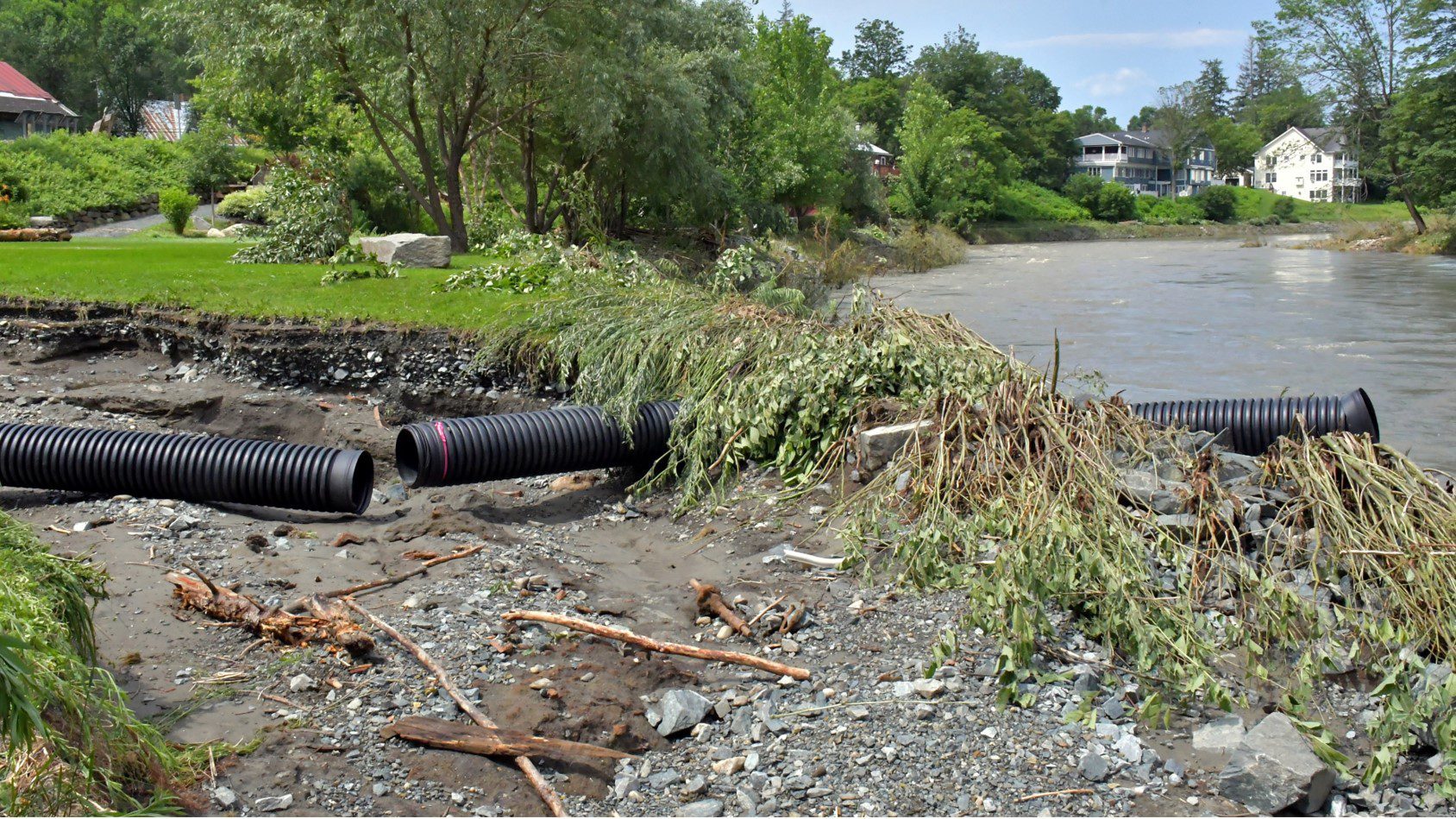
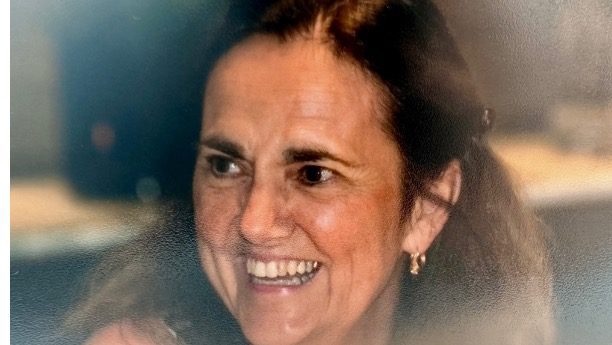
Now it’s official — IRS approves Journalism Foundation as public charity, donations are tax deductible
Students propose designs for improving wastewater facility appearance
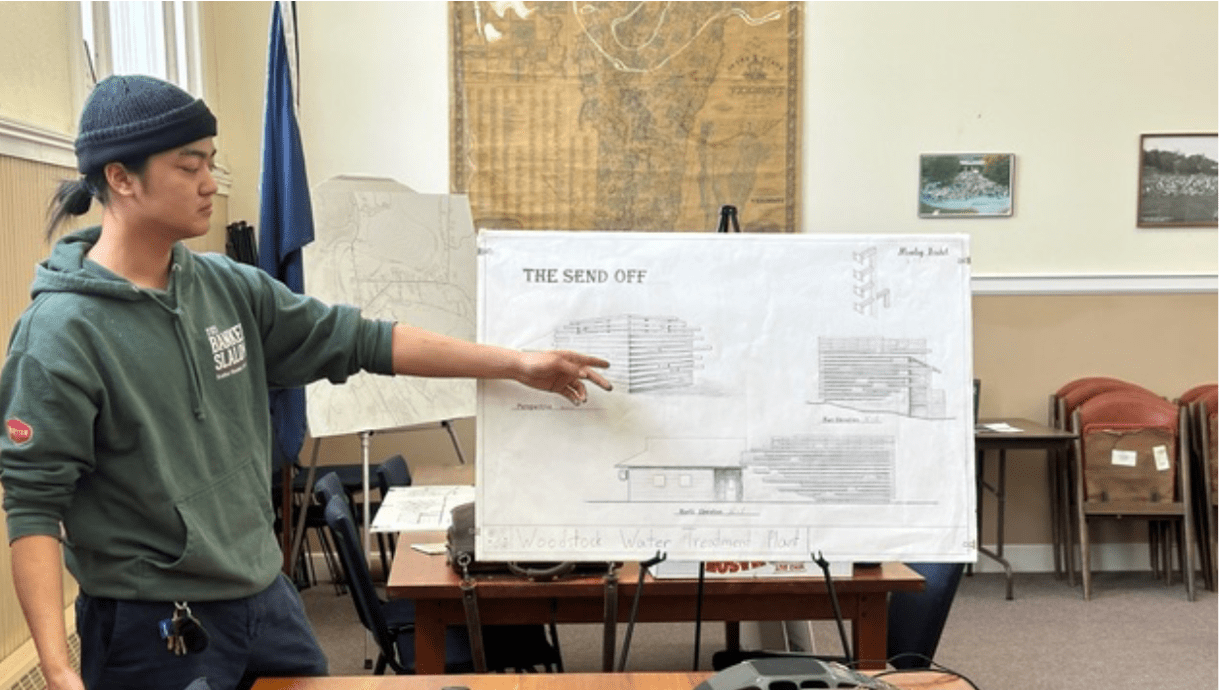
Pentangle’s executive director to retire, leaving room for ‘new energy’

News
April 15
11:47 am
Bookstock canceled
Peter Rousmaniere, co-founder and board chair of Woodstock’s annual Bookstock festival announced on Sunday that the event scheduled to take place this summer, June 21-23 has been canceled.
The festival has hosted over 400 authors and sold over 70,000 books since its inception in 2009.
For more details on this, please see our April 18 edition of the Vermont Standard.
 Robert Kerbeck, author of “Ruse” and former CIA officer Valerie Plame discuss how her cover was outed for political reasons. Rick Russell Photo
Robert Kerbeck, author of “Ruse” and former CIA officer Valerie Plame discuss how her cover was outed for political reasons. Rick Russell Photo Political satirist Andy Borowitz (right) reads from a list of funny one-liners from former Vice President Dan Quayle.
Political satirist Andy Borowitz (right) reads from a list of funny one-liners from former Vice President Dan Quayle.
Robert Shumskis Photo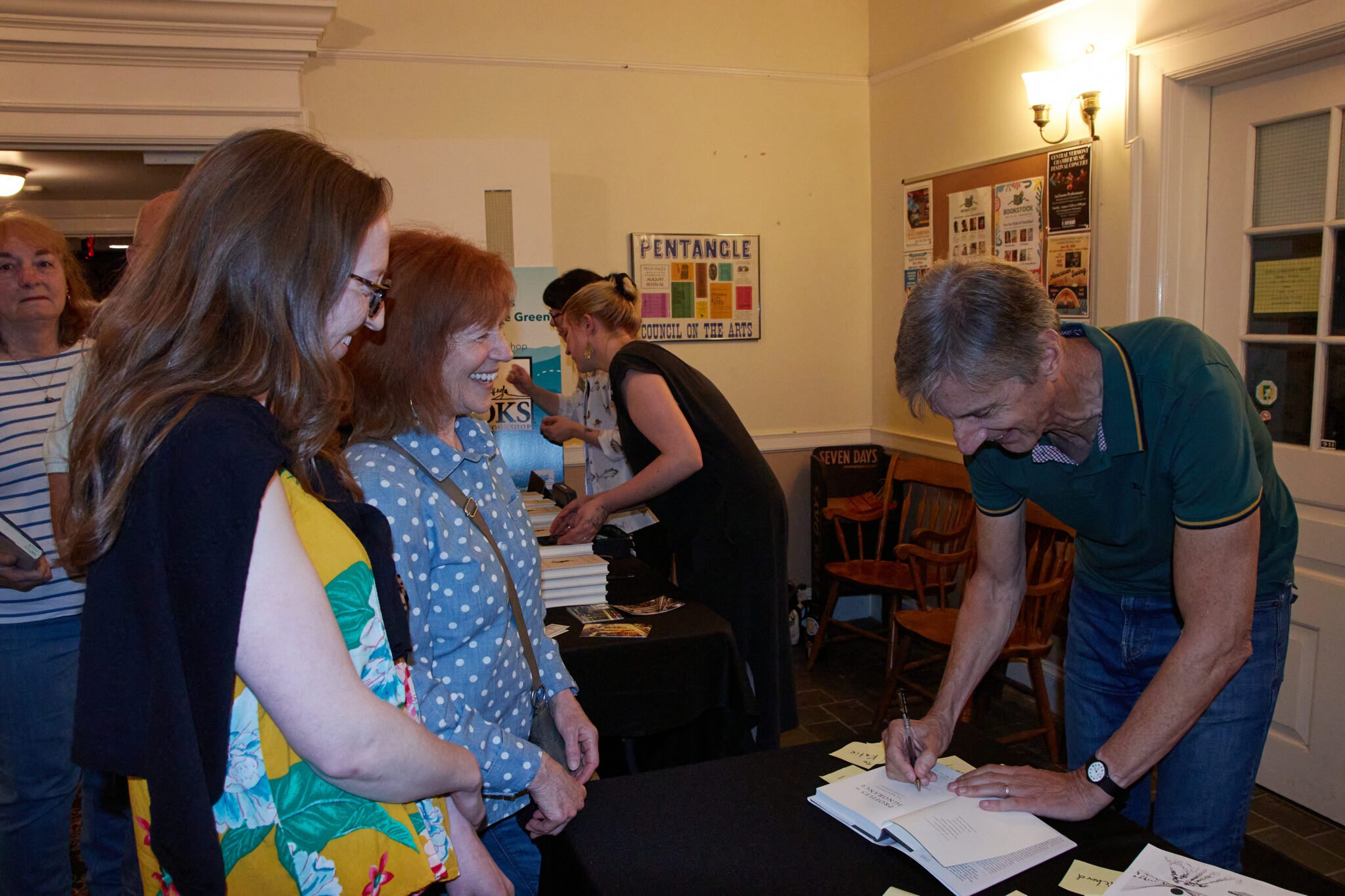 Sarah Robinson (left) and her mom Katie speak with Andy Borowitz as he autographs a copy of his latest book for them.
Sarah Robinson (left) and her mom Katie speak with Andy Borowitz as he autographs a copy of his latest book for them.
Robert Shumskis Photo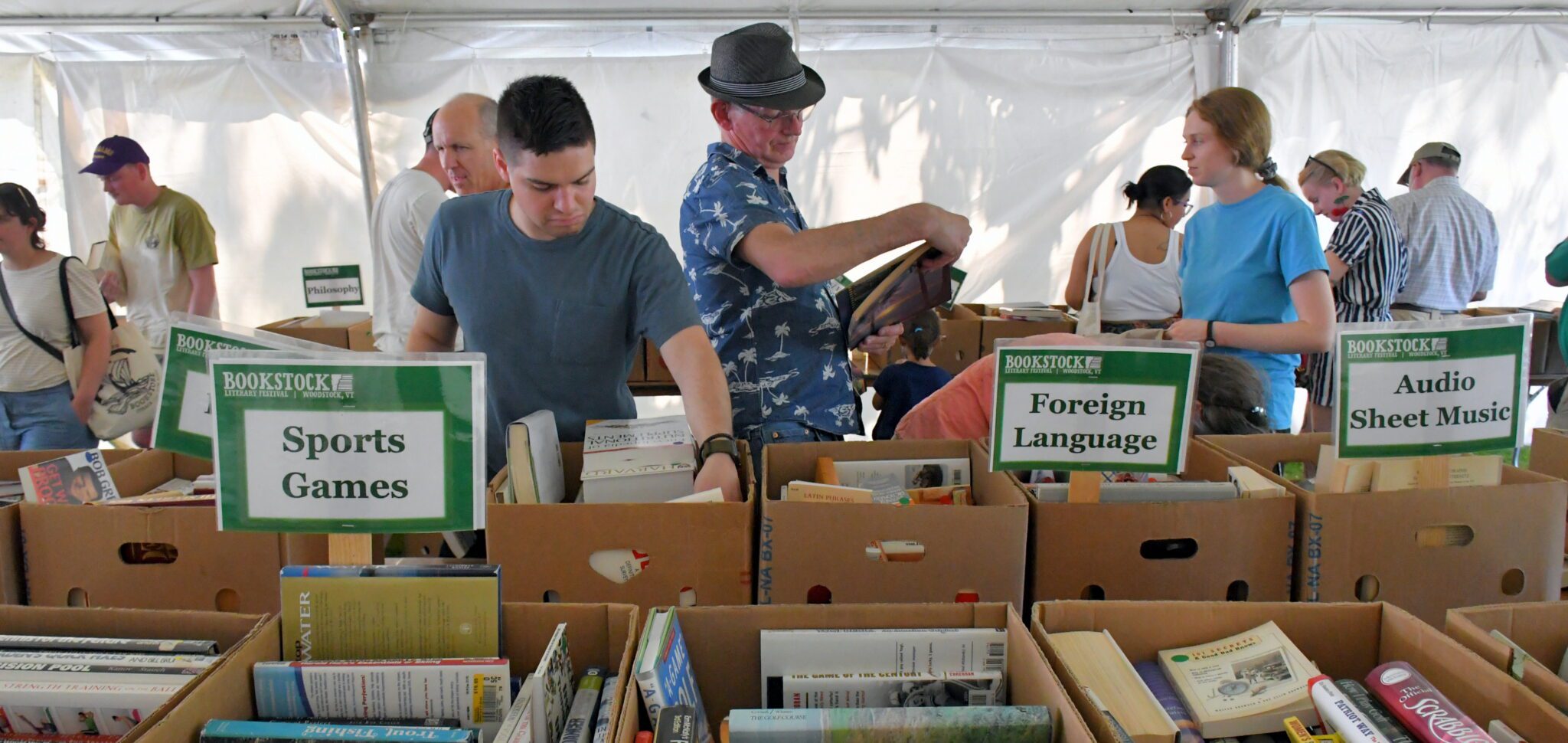 People peruse the book sale.
People peruse the book sale.
Rick Russell Photo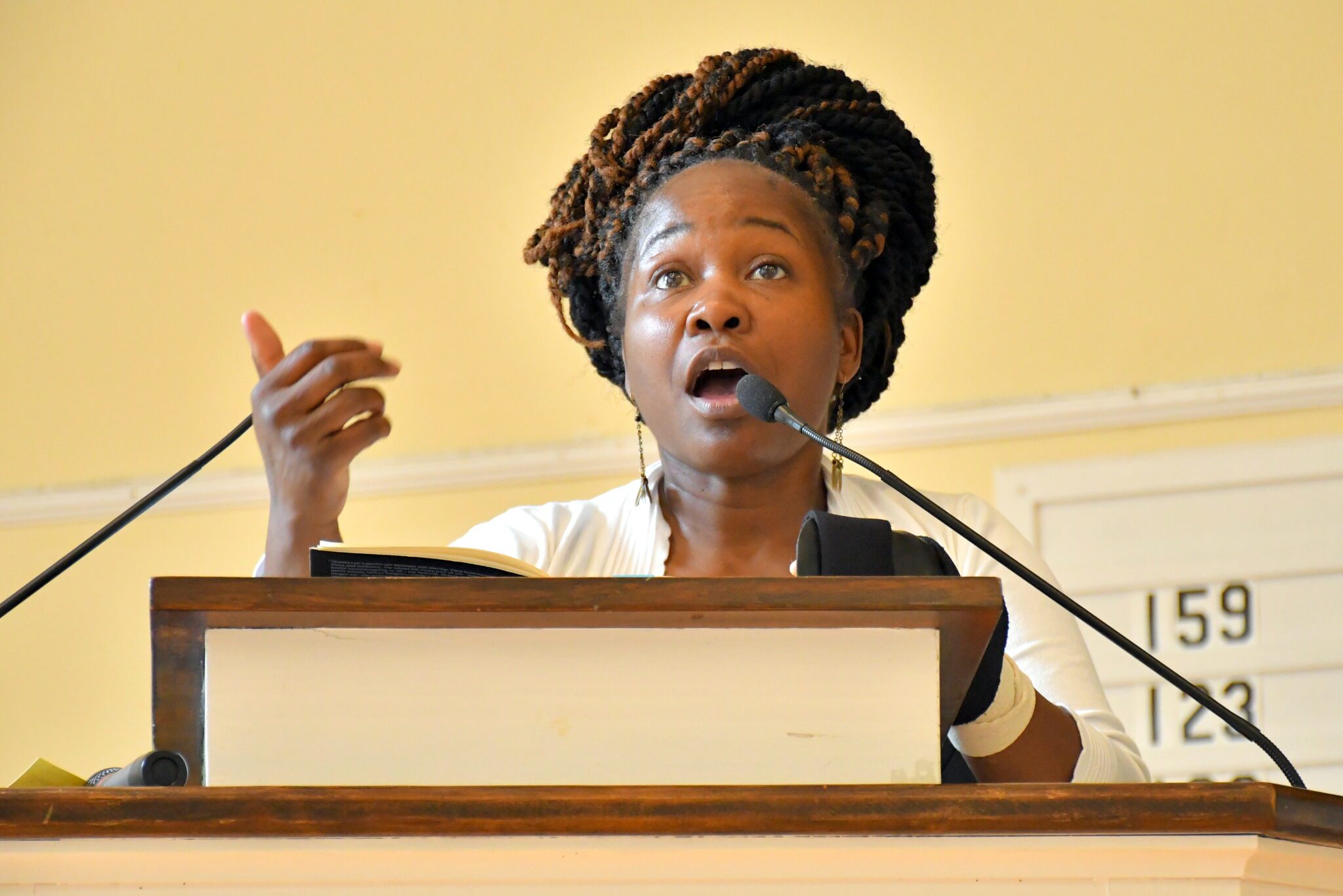 Shanta Lee Gander discusses her book “GHETTOCLAUSTROPHOBIA: Dreamin of Mama While Trying to Speak Woman in Woke Tounges” at North Chapel.
Shanta Lee Gander discusses her book “GHETTOCLAUSTROPHOBIA: Dreamin of Mama While Trying to Speak Woman in Woke Tounges” at North Chapel.
Rick Russell Photo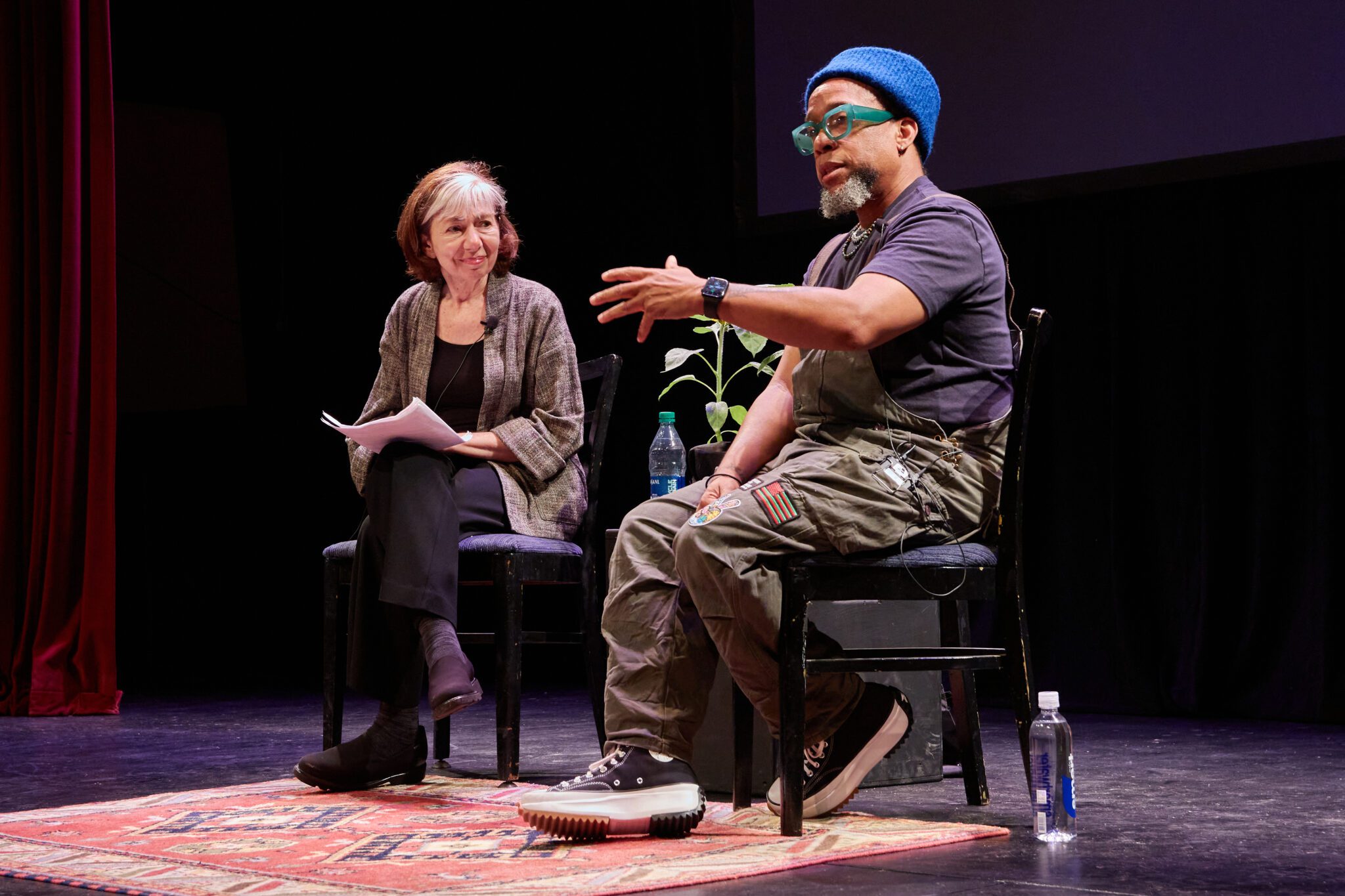 Speech Thomas addresses the audience about his film 16 Bars, while Robin Casarjian listens in.
Speech Thomas addresses the audience about his film 16 Bars, while Robin Casarjian listens in.
Robert Shumskis Photo “Hey Girl” by Dorsey Hogg, made from a discarded history of art textbook pages and a found box.
“Hey Girl” by Dorsey Hogg, made from a discarded history of art textbook pages and a found box.
Rick Russell Photo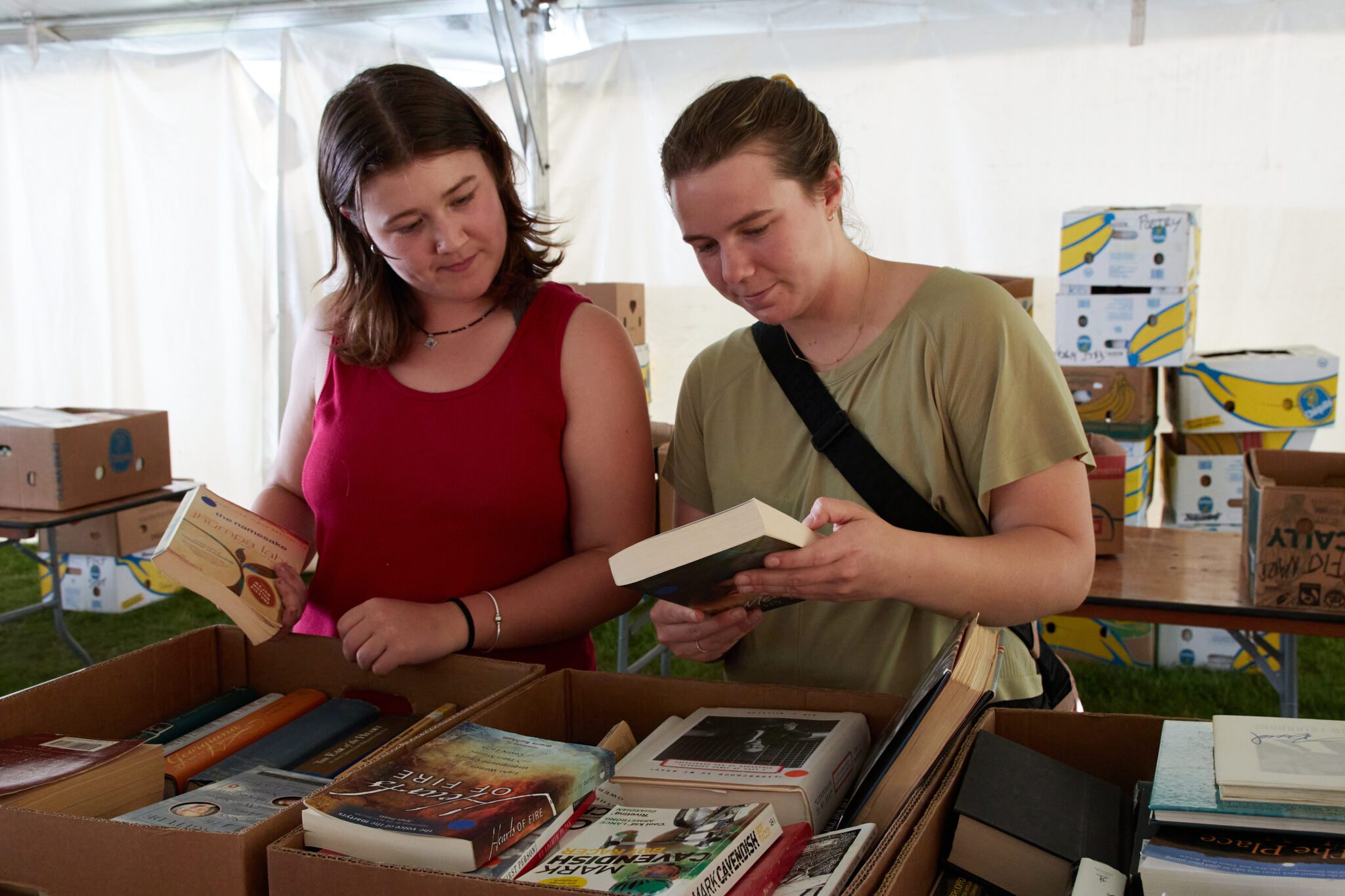 Sisters Mary and Ellie Cook, of Lyme, N.H., browse through a box of books at the book sale on the Green.
Sisters Mary and Ellie Cook, of Lyme, N.H., browse through a box of books at the book sale on the Green.
Robert Shumskis Photo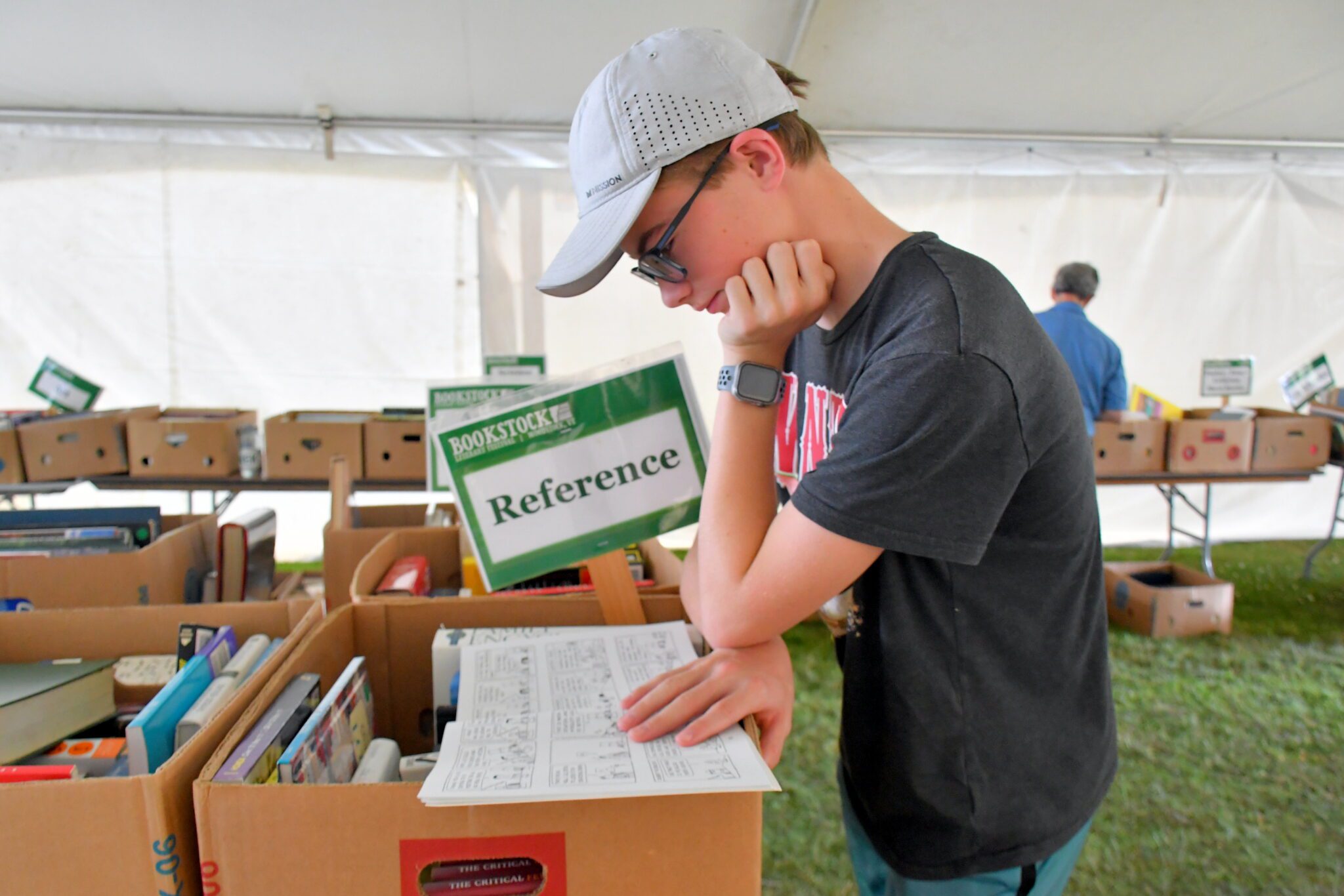 Gavin Malott, 14, of Memphis, Tenn., reads a book of comics. Rick Russell Photo
Gavin Malott, 14, of Memphis, Tenn., reads a book of comics. Rick Russell Photo
April 15
11:30 am
Woodstock Community Trust, EDC launch new workforce housing initiatives
The Woodstock Community Trust (WCT) and the Woodstock Economic Development Commission (EDC) are implementing two separate initiatives aimed at easing the workforce housing shortage in the region.
Modeled after Vail Indeed, a successful housing program operating in the Colorado resort community, the WCT’s Local Deeds effort has already helped two new home buyers with down payments in exchange for a deed restriction. During this initial pilot phase, the WCT will consider helping home buyers with down payments of up to 16 percent of the market value on a single family, multifamily or condominium property in move-in ready condition. The down payment is in exchange for a deed restriction that transfers with ownership and permanently requires that one occupant works or will work locally for a business or organization within a a 16-mile radius of the Woodstock Town Hall. Short-term rentals are strictly prohibited.
On the EDC front, the commission is kicking off a new “Lease to Locals” rental incentive program in collaboration with Placemate, a California-based consulting and placement agency whose misson is to help local employees secure housing in tourism-based communities. Placemate currently runs rental incentive programs in seven significant tourist destinations, including Vail and Breckenridge in Colorado; Truckee, South Lake Tahoe, and Placer County in California; Sun Valley in Idaho; and Nantucket in Massachusetts.
Further details will be published in the April 18 edition of the Vermont Standard.
April 15
10:30 am
Ottauquechee River Trail to receive $20K grant for flood repairs
The Ottauquechee River Trail (ORT) organization has secured $20,000 from the Better Places community matching grant program of the Vermont Department of Housing and Community Development (VDHCD) to facilitate extensive repairs to significant portions of the trail and its infrastructure that were heavily damaged by floodwaters last July.
“The only caveat is that the ORT needs to raise $10,000 or more locally by May 31 as a match toward the state funding,” ORT spokesperson and volunteer Tom Weschler said last weekend. An online crowdfunding campaign launched on Monday, utilizing an online platform called Patronicity, the state-appointed crowdsourcing program that all Better Places grantees are required to use for their community-based fundraising efforts.
The repairs needed for the flood-ravaged ORT are largely confined to what trail officials refer to as the lower field, which is predominantly used as a hayfield by the Billings Farm & Museum. The tree-rimmed field sits directly across the Ottauquechee from the Billings Farm and is held by the Woodstock Resort Corporation.
When the current crowdfunding campaign reaches its goal of $10,000, it will trigger the release of the $20,000 matching grant from the Better Places program. “In addition to the lower field repairs, the funding will also enable planting of trees to strengthen the riparian buffer along the trail and to improve signage at the trailhead,” Weschler said.
VDHCD and ORT representatives are both urging businesses, organizations, and community members to make donations to the repair effort directly online at patronicity.com/ORTRebuild.
For further details, please see our April 18 edition of the Vermont Standard
April 11
10:31 am
Village Trustees vacancy filled by Lisa Lawlor
The vacancy on the Woodstock Village Trustees that was created when Bill Corson stepped down as of April 1 was filled at last Tuesday night’s meeting. The board appointed Lisa Lawlor to fill the slot.
For further details, please see our April 18 edition of the Vermont Standard.
April 11
6:55 am
Pentangle's executive director to retire, leaving room for 'new energy'
After spending over a decade at the helm of Pentangle Arts, Alita Wilson will be stepping down from her position as executive director later this year. Pentangle’s board is currently in the process of finding a replacement, who Wilson will help train before she fully departs. “I think this decision of mine is bittersweet,” Wilson told the Standard. “I have to remind myself that new energy and a new perspective is the lifeblood of nonprofits, and I can’t deliver that because I’ve been in it too long. I feel like I’ve poured as much as I can into Pentangle.”
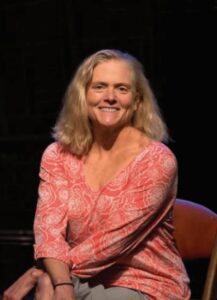
Alita Wilson
Wilson began leading the nonprofit in October 2014, and she says that when she started, the organization was in considerable disarray.”Everything was just way more than the organization could afford. It was quite the first year just getting the finances back in order,” said Wilson.
Her biggest priority, however, has been enriching and enhancing Pentangle’s programming for children. “The cornerstone of Pentangle’s mission has been and should always remain programs that support the youth,” said Wilson.
Now, as Woodstock takes on a number of infrastructure projects, Wilson feels it’s a good time to find a new leader who can guide the organization through a potentially tumultuous few years.
As the transition approaches, Wilson plans to stay on for at least a month to ensure the next director has everything they need to successfully take on the role.
Pentangle’s board is conducting a search for Wilson’s replacement, and according to Pentangle board chair Bill Corson, they expect to begin interviewing potential candidates later this month.
For further details, please see our April 11 edition of the Vermont Standard.
April 11
6:55 am
Students propose designs for improving wastewater facility appearance
Earlier this month, the Woodstock Selectboard subcommittee tasked with improving the appearance of the South Woodstock Wastewater Treatment Facility heard design proposals from four Vermont State University architectural design students. “Everyone on the committee was pleased we had [asked] Professor LaRosa and his students for ideas,” Tom Devevoise, the chair of the subcommittee, told the Standard. “[We] were also relieved that the students took our financial concerns seriously.”
All four student proposals, which took vastly different approaches, shared one suggestion: replace the fence in front of the plant.
In light of the students’ agreement on the fence, the subcommittee, which has not made any official decisions about the proposals, is strongly considering reworking the site’s fencing.
Christian Kirk, a senior at Vermont State University proposed replacing the plastic slates and barbed wire with a curved-top commercial fence, which would let passersby see into the facility.
The other student proposals all incorporated an overlay on top of the facility’s main concrete structure. Hutch Boren, a sophomore, suggested placing a barn-like facade over the treatment plant. The overlay would be covered with brick veneer and have three arch cutaways that revealed the treatment facility beneath.

The South Woodstock Wastewater Design Committee heard proposals from four Vermont State University students on how best to improve the appearance of the treatment facility. Sophomore Hutch Boren proposed overlaying a barn-like facade on top of the treatment plant, with cutaways that showed the building underneath.
Susan Ford Photo
The final two proposals suggested installing slats over the larger building to deflect attention away from the plant. Sophomore Oscar Lehnartz proposed using horizontal wooden boards, while Aiden LaPointe, who is also a sophomore at the university, proposed using repurposed vertical sheets of metal.
Overall, the committee was happy to have the additional input. “This is exactly what we need, fresh ideas,” said Susan Ford, a committee member, after the presentation. Debevoise agreed. “The idea that we should try to deflect attention from the building rather than trying to camouflage it, perhaps with some horizontal components to the siding, would not have occurred to most of us,” Debevoise told the Standard.
Before scheduling a meeting to go over the proposals in more detail, the committee is waiting to hear rough cost estimates for each of the designs. “Mark Hunter [is getting], not detailed, but certainly reasonably close estimates on potential costs,” said Devebois. “We have not set the next meeting date, [but] my guess is it will be during the last full week of this month when I believe everyone will be back in town.”
For more on this, please see our April 11 edition of the Vermont Standard.
April 11
6:55 am
Village considers new parking regulations
At Tuesday night’s Village Trustees meeting, the board discussed the details of a new parking ordinance, which they plan to vote on in May. The proposed regulations would extend metered hours in the Village an extra hour in the evening, from 4-5 p.m., limit the time a car can park in the same spot to four hours, and increase the prices of employee parking permits.
Under the current rules, metered parking in the Village does not have a time restriction. However, the new ordinance would limit parking to four hours. The four-hour cap would apply everywhere except immediately around the Village Green, where parking times would remain unregulated.
The proposed new rules would also change the price of parking permits, which Village employees can purchase to access reserved spaces.
On Mechanic Street, the ordinance would increase the price of a parking permit for a guaranteed space from $640 to $1,300 a year, while on Elm Street, where owning a permit does not ensure a space, the price would increase to $1,005.
The new ordinance would also add a 15-minute parking space in front of the Welcome Center. Finally, it would convert the parking space behind 27 Central Street from a private spot for the store, 121 Home, into a public 15-minute loading zone.
According to Kahn, if the ordinance passes in May, all of the changes could be implemented by July 1.
At the meeting, Cara Kettenbach, the owner of 121 Home, spoke out against the changes along with several others who expressed concerns. “I really think we should shelve all of it,” said Kettenbach. “There is so much that is at stake and involved in all of this, and I think we’re all being short-sighted on it. I can drive up to Stowe, and I can go park my car all day and not be charged a penny.”
In response to the comments, Seton McIlroy, the chair of the Trustees, suggested conducting a survey to see how residents, employees, and business owners felt about the proposed updates.
For further details please see our April 11 edition of the Vermont Standard.
April 11
6:55 am
Local farms spring ahead, contend with residual flooding fallout
The aftermath of last year’s flood events has left local farms grappling with significant challenges as they head into spring. Farms of all types are dealing with saturated soils, significant reseeding projects, and reduced planting space.
Barnard’s La Garagista farm and winery has five vineyards, but those at the highest elevations fared the worst last summer. Co-owner Deirdre Heekin explained that the damage may have hit those vines harder because they were young and had shallow root systems. Those vineyards were also some of the first plateaus the water reached as it washed down from higher elevations. As a result, several of the fields had standing water for weeks. “It really impacted the growth of the fruit, the health of the plants, and the health of the leaves,” said Heekin.
In response, Heekin says she rotated sheep throughout the parcels, their eating of the vegetation on the field’s floor allowing for more air circulation, which helped the plants dry out. As spring approaches, Heekin plans to bring the sheep back and prune the vines to help their recovery.
A town over, at Brook and Blossom Flower Farm in South Pomfret, the flooding has forced owner Heather Durkel to decommission almost a sixth of the farm’s growing space. “That section of field turned into a swamp or a kind of flash lake in the summer,” said Durkel. “The crops, both [annual] and perennial, were basically destroyed.”
Despite the reduction in planting space, Brook and Blossom plans to significantly boost their crop output this year to give them a buffer if their flowers are again compromised by wet conditions.
In addition to seeing considerable road and trail damage, which they haven’t yet been able to repair, Bourdon Maple Farm in Woodstock lost some trees, which toppled in the wet soils. Owner Don Bourdon plans to spend much of this summer repairing roads and thinning out the forest to help those trees that remain thrive should unseasonable weather persist.
Billings Farm & Museum in Woodstock, which primarily grows hay and produces dairy, is also dealing with the lingering effects of last year’s flooding. Perhaps most pressingly, they still need to repair the lower hay fields by the Ottauquechee River Trail. Billings has about 35-40 acres to reseed in total, which Phil Ranney, Billings’ farm manager, hopes to have finished by the end of May, depending on the weather.
The farm, which usually aims to grow all of its own hay, will continue to have to purchase much of the crop this year, as the newly seeded fields won’t produce much during their first season. To help prevent such damage in the future, Ranney plans to significantly expand the riparian buffer on the farm’s lower fields.
The Green Mountain Horse Association (GHMA) in South Woodstock also has some cleanup to do before the season begins in May. “We still have to get some of the silt from all the fields and do some reseeding. We didn’t finalize all their work last fall,” said Bruce Perry, the GMHA executive director. “We wanted to wait until the end of the snow melt this year, just in case we got some more flooding.”
GHMA, which was hit particularly hard last year, is also looking for ways to increase its resiliency. The organization just received a $100,000 grant from the state as part of that effort.
Overall, the speed with which the region’s farms will fully recover from last year’s flooding remains dependent on this year’s weather and each organization’s ability to respond to ever-changing conditions.
For further details, please see our April 11 edition of the Vermont Standard.
April 11
6:55 am
Aqueduct Co. seeks to double rates, addressing flood damage and deficiencies
The privately owned Woodstock Aqueduct Company (WAC) has filed a request with the Vermont Public Utility Commission (PUC) to more than double the rates the water utility charges to its more than 770 users in the Village and its immediate environs.
The proposed rate hike, which would take effect May 16 if the PUC grants the April 2 request, is needed “to address severe damage to the town water system caused by the Summer 2023 flooding,” WAC President Jireh Billings said in a statement sent to the Standard last Friday. “We are also seeking a change in rates that will support much-needed infrastructure investments that are required by the State of Vermont Drinking Water and Groundwater Protection Division to bring fire hydrants in town into compliance with Vermont Water Supply rules.”
In a phone interview on Saturday morning, Billings said that the WAC is seeking the rate hike as a matter of “due diligence” even as Town of Woodstock officials continue to conduct a detailed review of the financial status of the privately held utility that could lead to the town’s acquisition of the company, pending the approval of voters in a special election. Ever since the water company’s significant financial and infrastructure woes came to light last summer, Billings and WAC shareholders have contended that the municipal purchase of the undercapitalized utility is in the best interests of the company, system users and ratepayers, taxpayers, and the town.
Documentation supporting the proposed rate increase that the WAC provided to the PUC paints a telling portrait of the company’s financial and infrastructure challenges and their potential impacts on ratepayers if the utility remains in private hands. “In 2022, the Vermont Department of Environmental Conservation (DEC) issued a deficiency letter identifying non-compliance with the Vermont Water Supply Rule. Specifically, some hydrants connected to the system cannot produce 500 gallons per minute without dropping the pressure below 20 psi anywhere in the system, which is the regulatory standard…this issue is exacerbated further when the wells are not running, and water is only entering the system from the water storage tank,” Billings noted. “This is the largest single expense in the rate increase and accounts for $292,759 per year. This will fund the project necessary to solve most of the deficiencies.”
The next largest jump in WAC’s rate increase application is for planned pipe replacement since the DEC has ruled that the utility needs to develop “a replacement plan and schedule to address the aged and undersized distribution system” Billings stated. Other increases requested via the rate hike application include funding for the work needed to install a permanent water pipe at the Elm Street river crossing, which was wiped out in flooding last July, as well as increases in payroll, legal, and accounting costs for the utility.
If okayed by the PUC, the base charge for water service for WAC ratepayers will increase from the current $240 to $503.56 per year. The variable charge based on customer usage volumes above 300 cubic feet per month will change from three cents to seven cents per cubic foot. Hydrant charges billed to the Town of Woodstock would increase from $360 per year to $3,804.92 per annum.
Consistent with the filing of the rate increase request by the WAC on April 2, the Vermont Department of Public Service began investigating the proposal and will provide its recommendations to the PUC by May 2. The commission will then determine whether to approve the rate request or open its own investigation by May 16.
WAC customers are encouraged by the PUC to submit comments on the WAC rate increase application to the commission at any time. Comments regarding the utility’s filing may be submitted online at epuc.vermont.gov or by mail to the Vermont Public Utility Commission, 112 State Street, Montpelier, VT 05620-2701. Commenters should reference PUC Case Number 24-0969-TF.
For further details on this, please see our April 11 edition of the Vermont Standard.
April 11
6:50 am
A celestial spectacle, solar eclipse ushered in thousands to Vermont
On Monday afternoon, hundreds of thousands of amateur and experienced “umbraphiles,” or eclipse-chasers, flocked to Vermont to view the total solar eclipse. As cloudy skies below Vermont threatened the majority of the eclipse’s path of totality, regional umbraphiles adjusted their plans – the estimated influx ranged from 160,000 to upwards of 250,000 visitors. Although Woodstock experienced only a deep partial eclipse, local venues hosted eclipse-themed activities over the weekend and into Monday evening.
 Brianne Gallagher and daughter Raea McIntire, 7, of Woodstock, brought blankets, a pillow, and a favorite stuffed animal to watch the eclipse from the lawn at VINS.
Brianne Gallagher and daughter Raea McIntire, 7, of Woodstock, brought blankets, a pillow, and a favorite stuffed animal to watch the eclipse from the lawn at VINS.
RIck Russell Photo At 3:29 p.m., the peak of the eclipse in our area, the sun was almost completely obscured by the moon.
At 3:29 p.m., the peak of the eclipse in our area, the sun was almost completely obscured by the moon.
Rick Russell Photo From left: Woodstock Union High School sophomores Finn Costello, Kaitlyn Burres, Aleks Cirouit, and Riley O’Neal watch the eclipse from the top of the VINS Forest Canopy Walk Tree House.
From left: Woodstock Union High School sophomores Finn Costello, Kaitlyn Burres, Aleks Cirouit, and Riley O’Neal watch the eclipse from the top of the VINS Forest Canopy Walk Tree House.
Rick Russell Photo Alden Smith, Vermont Institute of Natural Science’s (VINS) new Executive Director, looks up at the eclipse from the Forest Canopy Walk tower.
Alden Smith, Vermont Institute of Natural Science’s (VINS) new Executive Director, looks up at the eclipse from the Forest Canopy Walk tower.
Rick Russell Photo By 3:51 p.m., more than half of the sun was un-obscured once again.
By 3:51 p.m., more than half of the sun was un-obscured once again.
Rick Russell Photo Andrew Levesque, of Glastonbury, Conn., watches the event through solar glasses at VINS.
Andrew Levesque, of Glastonbury, Conn., watches the event through solar glasses at VINS.
Rick Russell Photo
For more on this, please see our April 11 edition of the Vermont Standard.
April 11
6:50 am
Hartford Town Treasurer launches campaign for Vermont State Senate
Hartford Town Treasurer and Executive Director of the Upper Valley Aquatic Center, Joe Major has announced his candidacy for Vermont State Senate, representing Windsor County.
According to a release sent to the Vermont Standard, Major’s campaign will focus on affordable housing, community safety, flood recovery, and strengthening the K-12 public education system.
For further details, please see our April 11 edition of the Vermont Standard
April 11
4:49 am
The Standard’s "Do802" app goes live
Do802.com, a new service of the Vermont Standard, is now live. The free, web-based app features a comprehensive calendar of events and an up-to-the-minute feed of deals, discounts, and announcements posted by local businesses. Do802 was designed to help quickly connect people to everything the Upper Valley offers. From favorite restaurants, local festivals, and unique exhibitions, to last-minute discounts on specialties and handmade Vermont products, there’s so much in the Upper Valley to take advantage of. Do802 offers a simple way to quickly find what to do so that residents and visitors alike can spend less time looking for their next experience, and more time enjoying it.
It’s simple to use Do802. The first section is an easy-to-navigate, interactive listing of things to do for fun and fulfillment in the Upper Valley each day. The calendar on Do802 offers a great way to see what’s happening, from concerts to community events to club meetings. Rather than digging through different websites, feeds, or emails, Do802’s “What To Do” section offers a simple, fast, and comprehensive way to find the right experience every time.
The second part shows a rolling log of special offers and announcements posted by local businesses and organizations. It features last-minute offers (e.g., “Half off muffins for the next hour!” or “Early bird special on tickets today only.”). It also includes reminders and announcements (e.g., “In thirty minutes, the band will take the stage,” or “Free book signing in two hours.”). Do802 is a way for businesses, both treasured and new, to instantly communicate with residents and tourists alike, giving users a chance to benefit whenever a bakery bakes too much bread or a matinee show doesn’t quite sell out.
Do802 was designed by the Vermont Standard to help fund the journalism in its paper. The Standard, like all local newspapers around the country, needs additional revenue to help make up for the loss of traditional print advertising. Do802 is just one way the Standard will be deploying creative solutions to help keep its community coverage flowing.
Do802 is a progressive web app, which means it can behave both like a website and a mobile app. Users can go to the Do802 website on any phone, tablet, or computer. On a mobile device, they can also save Do802 to their home screen, so it is easily accessible and acts just like an app. To save Do802 to your home screen on iPhones, go to Do802.com and click the share button (a square with an arrow pointing up) at the bottom of the screen. Scroll down the list of actions before tapping on “Save to Homescreen.” On Android, the same thing can be done in the three-dot menu at the top of the screen.
Features
April 11
6:45 am
Woodstock chef Emery Gray named executive pastry chef at Trapp Family Lodge
By Lauren Dorsey, Staff Writer
After five years as a pastry chef at the Woodstock Inn and three as the Farm to Table manager at Billings Farm, Emery Gray will be returning to the Vermont culinary scene beginning Saturday as the new executive pastry chef at the Trapp Family Lodge in Stowe. Gray, who has been working in Boston for the past year, will be stepping into her new role just two days before the April 8 eclipse is predicted to bring swarms of travelers to the area. “What a way to start. It’s going to be incredible,” Gray told the Standard. “I’m ready to jump in with both feet. It’ll be just like the thick of foliage season.”
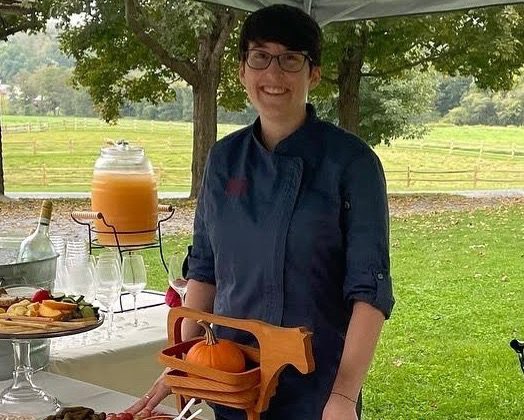
Gray’s love of baking began early. She knew she wanted to be a chef when she was in the third or fourth grade. By the time she entered high school, Gray had begun pursuing her dream in earnest, attending a culinary arts program for all four years. Courtesy of Emery Gay
Gray’s love of baking bloomed early, during long afternoons spent helping her grandmother create delicacies and share them with her family. “It’s very cliche, the whole ‘baking with your grandmother when you were younger’ [story], but it really sparked my love and joy for food,” said Gray. “I knew I wanted to be a chef probably since the third or the fourth grade.”
Gray began pursuing her dream in earnest long before most people have any notion of what their future careers might be, attending a culinary arts program for all four years of high school. By the time she graduated in 2007, Gray had decided to specialize in pastries and began studying at the Culinary Institute of America in Hyde Park, N.Y.
Throughout her journey, Gray has always strived for perfection; the slim margin of error inherent to baking is part of what drew her to it in the first place. “I’m such a rule follower in life that I really love the specific set of instructions and the exact way a recipe has to come together. You have to follow the ratios and the rules,” said Gray. “Pastry requires so much finesse and concentration to create, and I don’t [just want to create]. I want people to sit down and say, ‘That was the best that I’ve ever had.’”
After earning a bachelor’s in business management, Gray’s love of pastries eventually landed her at the Woodstock Inn in 2015. “I love the variety that a hotel/resort setting offers,” said Gray. “You get to challenge yourself in many ways and focus on so many different facets of pastry from making breads to wedding cakes.”
While at the Inn, Gray worked her way up. By the end of her tenure, she had designed the pastry menus for both the Red Rooster and the Tavern. “There were a lot of opportunities there to learn and grow,” she said, “and eventually getting to put my dishes out for people to enjoy was really wonderful.”
After half a decade, however, Gray was ready to try something new, so she hopped over to Billings Farm & Museum. In her new role, Gray oversaw the museum’s cheese production, expanded their food offerings, and taught cooking classes.
 Gray’s love of pastries stems, at least in part, from her love of perfection. The strict rules, tiny margins of error, and specific methods drew her in from the very beginning.
Gray’s love of pastries stems, at least in part, from her love of perfection. The strict rules, tiny margins of error, and specific methods drew her in from the very beginning.
Courtesy of Emery Gray Emery Gray hopes to add wedding cakes to the Von Trapp Lodge’s offerings. Currently, the lodge contracts out all of their wedding cakes, but Gray hopes that she will be able to add their production in 2025.
Emery Gray hopes to add wedding cakes to the Von Trapp Lodge’s offerings. Currently, the lodge contracts out all of their wedding cakes, but Gray hopes that she will be able to add their production in 2025.
Courtesy of Emery Gray Emery hopes to emphasize the lodge’s Austrian heritage in her pastries, while also challenging the boundaries of what makes a traditional Austrian dessert.
Emery hopes to emphasize the lodge’s Austrian heritage in her pastries, while also challenging the boundaries of what makes a traditional Austrian dessert.
Courtesy of Emery Gray Before securing her current position, Gray worked at the Woodstock Inn for half a decade before hopping over to Billings Farm for three years. More recently she spent a year as the assistant pastry chef at an Italian restaurant called Fox & The Knife.
Before securing her current position, Gray worked at the Woodstock Inn for half a decade before hopping over to Billings Farm for three years. More recently she spent a year as the assistant pastry chef at an Italian restaurant called Fox & The Knife.
Courtesy of Emery Gray Courtesy of Emery Gray
Courtesy of Emery Gray Courtesy of Emery Gray
Courtesy of Emery Gray
Gray noted that she felt her position at Billings was pretty close to perfect. “Billings allowed me to use my business degree and grow their food programming from the ground up, which was an incredible experience because I got to be creative. I got to try things and while some things worked and some things didn’t, overall, I really liked it,” said Gray.
However, Gray’s life in Woodstock changed in the wake of the lawsuit filed in early 2023 by members of the Woodstock Foundation Board. Gray says she ultimately decided to leave Billings Farm. “Unfortunately, my moral compass directed me to take a step back from Billings Farm, because I didn’t exactly agree with what was going on,” said Gray. “The minute you lose trust with senior management, I think that’s when it’s time to go.”
Gray has spent the last year working at an Italian restaurant in Boston, called Fox & the Knife, as an assistant pastry chef. “It has been a wonderful year exploring Boston and getting immersed in the culture, creativity, and constant movement,” said Gray. “There are also way more young people in Boston than there ever were in Woodstock, which was kind of shocking at first.”
Although she’s thrilled to come back to the area, Gray did not expect her stay in Boston to end quite so soon. “Moving back to Vermont in 2024 was not on my bingo card at all. But lo and behold, I saw the job advertisement for the Trapp Family Lodge and decided to go for it,” said Gray. “I was very pleased and excited to be offered the position.”
The Lodge, which was founded by the famed von Trapp family immortalized in the “Sound of Music,” maintains close ties to Austria, a relationship which Gray plans to harness. “The challenge and the fun part about that is how to highlight and honor the culture of Austria while also changing the way you think about what a Linzer torte can look like, and what its texture and flavor can be.”
In addition to maintaining some of the lodge’s oldest traditions, Gray is also looking to add a few things to their repertoire. “I’m definitely excited about possibly bringing a wedding cake program to the Trapp Lodge,” said Gray. “Currently [all] of their wedding cakes get contracted out, so being able to get in and introduce wedding cakes, hopefully in 2025, is something that I will strive for.”
Gray, in typical fashion, however, wants to ensure that any wedding cakes she has a hand in are miles beyond average. “Not only does the cake have to look great, but it also has to taste great,” said Gray. “I’ve had lots of wedding cakes that look amazing, but don’t taste so hot. If I can change the culture of wedding cakes, and bring it to Stowe, that would be really special and wonderful.”
At the cusp of such an exciting new chapter, Gray took a moment to emphasize the importance of relishing the moment. “As a chef, I just want to encourage everyone that wherever they go to eat, there’s someone creative behind the scenes putting their heart and soul into a dish that they create,” said Gray. “Someone’s hard work and creativity is on the plate in front of you and it can feel really special to slow down and just sit, enjoy, and savor.”
April 11
6:20 am
Woodstock's Blanchard was an amazing seamstress and generous volunteer
‘Never met anyone who was a stranger for more than a few minutes’
By Lauren Dorsey, Staff Writer
Skilled seamstress, dedicated photographer, and avid traveler Christa Blanchard, who lived in Woodstock for more than 60 years grew up in Germany, but her daughters say that Barberry Hill was her chosen home. “She loved this community. Even in the last few years when we drove through Woodstock, she’d always say, ‘we just picked the prettiest place to live,’” said Sonja Blanchard, the youngest of Christa’s two daughters. “From the community to the aesthetics of main street and everything in between, she was always really expressive about her love for the town.” Christa Blanchard passed away on Feb. 19 at the age of 85.
Blanchard’s deep appreciation of the area manifested in more than just her words. It was evident in the countless times she opened her door to strangers, in each of the 50 years she volunteered at Glad Rags, and in the unyielding support she gave to Vermont 4-H.
Born in Stettin, Germany in 1938, Blanchard spent her first 18 years in her birth country. “It was not a great period in her life,” said Christa Davis, Blanchard’s oldest daughter. Her father fought in WWII, leaving her, her mother, and her younger brother to fend for themselves. Shortly afterward, her mother died of cancer. “She was left on her own to take care of her seven-year-old brother,” said Davis. “It was pretty traumatic. [Once] she got to Woodstock, she felt like [she] had escaped.”
Blanchard mostly refrained from dwelling on her early life, and although she visited Germany a few times during adulthood, she never wanted to return permanently. “It was definitely a rough childhood,” said Sonja Blanchard. “It sculpted who she was and made her a very strong, independent person.”

When she first arrived in New York, Blanchard worked at the American Kennel Club and as a clothing model. Blanchard Family Photo
When Blanchard first came to the United States, she began working at the American Kennel Club in New York City. “She really loved it,” said Davis. “She learned a lot of her English by working for them.” She also took up modeling. “She always talked about how she was in one of the Vogue magazines,” said Davis. “But she did a bunch of different modeling jobs [over] the year or two she was there.”
Then, Blanchard married her first husband, and the couple moved to Woodstock just four days before she gave birth. “I just lucked out,” said Davis. “I easily could have been born in New York.”
Shortly after moving to town, Blanchard began working for the McHughes clothing store on The Green. “She worked for a really long time for both the women’s clothing store and the men’s clothing store,” said Sonja Blanchard. “She did alterations, and she would work part of the time in the store and part of the time at home.”
Blanchard originally learned the trade from her father, who had been a tailor. “He taught her an incredible amount,” said Davis. “It was amazing to watch what she could do. My sister and I are both pretty good seamstresses, but neither one of us can pull off the miracles that she could.” Blanchard typically sewed without patterns, preferring to drape the fabric to create the right shapes. “It was miraculous. She would just sculpt it on to a bust and then sculpt it on the person,” add Sonja Blanchard. “She was always able to fit everything perfectly.”
When the McHughes store closed, Blanchard opened her own alterations business, which she ran out of her house on Barberry Hill. “I think it was her way of staying home because she had two young kids,” said Davis.
When she did have to go out to take measurements or talk to clients, she often brought her daughter with her. “When I was small, probably six or seven, she went to a house on River Street to do alterations for several people,” said Davis. “I was sitting in the front hall, and it was taking forever. This woman came out. I guess my mom had just finished doing the fitting on her. She [saw me waiting and asked], ‘would you like to come have tea with me?’” Davis agreed and spent the afternoon listening to stories about the different kinds of animals in India. “[Later] I found out it was Indira Gandhi, [the] Prime Minister of India. She was staying there and mom had gone to do work for her.”
In addition to doing alterations, Blanchard also made countless wedding dresses from scratch, including those that her daughters wore down the aisle. “I told her to make whatever she wanted, just no poofy sleeves,” said Davis. “I was living in Virginia at the time, so I sent her my measurements, and she showed up at my wedding with my dress. It was beautiful.”
When she wasn’t sewing, Blanchard documented the world around her. “She took pictures of everything going on in Woodstock,” said Davis. “Her camera was always with her. [We] don’t have a whole lot of pictures of mom, but we have a whole lot of pictures of mom’s life.”
Blanchard unfailingly brought her camera whenever the family went on the road, which was sometimes weekly, as she and her second husband, Clyde Blanchard, loved to travel. Many weekends, before the sun rose, they would pile into either a Volkswagen Bug or bus and go on some adventure. “The bug was named Zippy,” said Davis. “The bus was just the bus. [We] went everywhere. [We’d] go to Washington DC during the cherry blossoms or air shows because my dad was in the Air Force for 30 years.”
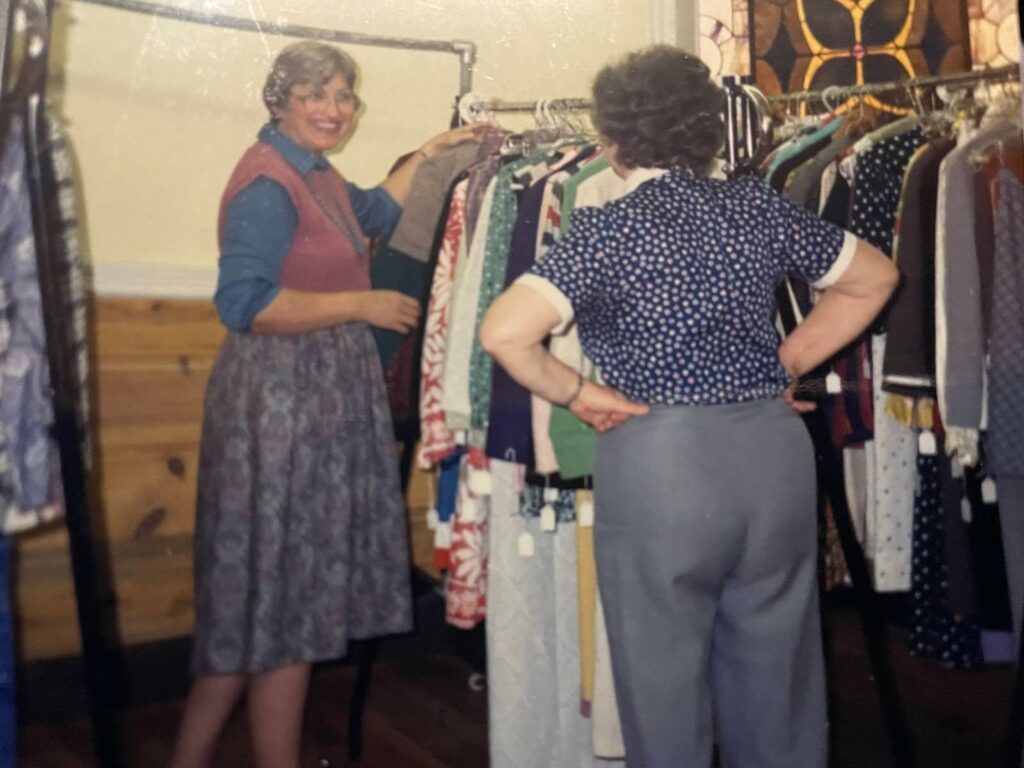
Blanchard volunteered for 50 years with Glad Rags, and over the half-century she lent her time to the program, she never missed a single sale. Blanchard Family Photo
They’d also visit friends all across the area. “We would be up in the backwoods somewhere, and we would pull up to some house — us kids had no idea where we were, but Mom and Dad apparently knew — and we would have dinner. It was crazy,” said Davis.
The trips were far from exclusive. On the contrary, Blanchard would invite everyone to come along. “Sometimes there would be 10 kids in that bus,” said Davis. “Because there weren’t seatbelts at the time, we just all piled in and off we went.” Some days, instead of packing the car with friends, they’d pack the road with cars. “They also belonged to a VW club,” said Davis. “When I was a kid, we would spend lots of weekends out in a line of 20 or 30 Volkswagens going up Mount Washington or going hiking.”
Part of the family’s dedication to Volkswagen stemmed from Clyde Blanchard’s job as a foreman at the Woodstock Volkswagen garage.
Through his work, Blanchard’s husband would frequently meet people who were stuck and could only leave town once someone had fixed their broken-down car. “The only place there was to stay at the time was the Woodstock Inn, where nobody could afford to spend the night, or, at least, not the people that were traveling around in a Volkswagen,” said Davis. As a result, the family frequently invited the stranded travelers to stay with them. “We never knew who was going to be at the dinner table or sleeping on the couches. My mom was pretty open that way. [She] never met anyone that was a stranger for more than a few minutes.”
Their generosity made a serious impression on many of the people who it touched. “My dad died a long time ago and there were over 600 people at the funeral that had come from all over the place,” said Davis. “A lot of them were people that only met us that one time.”
Blanchard also expressed her love for the community in more formal ways, volunteering for half a century at Glad Rags. “She never once missed one of their sales in over 50 years,” said Davis. “Our garage and part of our basement would be filled with Glad Rags. Anybody who needed to drop off [clothing] would drop it off at our house, and there would be enough to fill two tractor trailers in there before they had the Glad Rags room.”
Blanchard showed a similar tenacity in her work with 4-H. She was a leader of the Woodstock chapter for thirty years, and she spent long hours teaching kids how to sew riding clothes and outfits for regional and state sewing competitions. “The 4-H program could always depend on her to be there to help make those regional days and state days happen,” said Blanchard. “She was also a judge, for many years, at the competitions.”
“She was a very open and sharing person, [and] she lived a pretty full life,” Davis concluded.
Video features
April 11
5:30 am
Interview with Woodstock Planning and Zoning Director Steven Bauer
Obituaries
April 15
10:00 am
Helen Marie Curtis
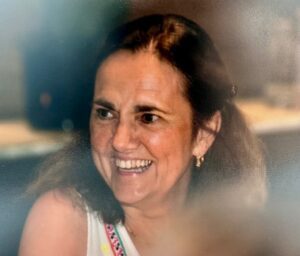 Helen Marie Curtis, a vibrant soul who touched the lives of many, peacefully passed away on April 7, 2024 in Southbury, Conn. Born on Jan. 17, 1946, in Denver, Colo. to father Charles A. Curtis and mother Marie (Schutte) Curtis, Helen’s journey was one of love, laughter, and boundless exploration.
Helen Marie Curtis, a vibrant soul who touched the lives of many, peacefully passed away on April 7, 2024 in Southbury, Conn. Born on Jan. 17, 1946, in Denver, Colo. to father Charles A. Curtis and mother Marie (Schutte) Curtis, Helen’s journey was one of love, laughter, and boundless exploration.
A cherished daughter, mother, sister, grandmother, aunt and friend, Helen leaves behind a legacy of kindness and strength that will forever echo in the hearts of those she held dear. She is survived by her daughter Lisa Paccione and wife Melissa Robbins of Chicago; son James Paccione and wife Tracy Paccione of Southbury, Conn.; the father of her children, Dale Paccione; her loving sisters Chris Ertel of Sante Fe, N.M., and Julie Ward and husband John Ward of Portland, Ore. Helen’s adoration extended to her grandchildren, Brynn and Tyler Paccione, as well as numerous nieces and nephews. She is preceded in death by her longtime partner, Thomas E. Singer, of Woodstock, Vt., with whom she shared many treasured memories.
Helen was known for her generous and kind nature, as well as being strong-willed and principled. She was a multi-talented individual who excelled in various aspects of her life. She thrived in academia, earning an undergraduate degree in Mathematics and Education from Merrimack College, a graduate degree in Mathematics and Education from Bridgewater State University, as well as an MBA from Simmons College. Her professional journey spanned from engineering at ATT to nurturing young minds as a high school math teacher and a math editor at Houghton Mifflin. She even found joy in crafting hand-knit treasures for children through her own venture, Abundancia. Until her death, she continued to dedicate herself to education, working part time as a standardized patient — simulating medical scenarios for first year medical students — at the Geisel School of Medicine at Dartmouth.
But beyond her achievements, Helen was an adventurer at heart. She began as a child, traveling often from Boston to Denver by train to spend time with her grandmother and cousins. She grew to travel the globe, from hiking the glaciers of Alaska, traveling to Kenya to photograph an eclipse, to walking with penguins in Antarctica as well as exploring portions of New Zealand, Australia and Europe.
Tennis and winter retreats to Punta Del Este, Uruguay, were among her favorite pastimes, where she reveled spending time with her many friends and visitors. Her zest for life led her to celebrate her 60th birthday with a family hike to Machu Picchu, a testament to her adventurous spirit and family connection. Her adventurous nature wasn’t limited to globetrotting. From summers spent at Humarock Beach in Massachusetts in her youth to earning her membership to the 251 Club of Vermont with friends, she embraced every opportunity for exploration and discovery, finding beauty and joy close to home.
Helen had a passion for art and enjoyed drawing and painting with her friends. As an amateur artist, she entered her work in local art expeditions and won some accolades. Fearless by nature, she submitted and had one of her portraits included in a community project that was part of “The Obama Portraits Tour” exhibit at The Museum of Fine Arts, Boston (BFA).
A lifelong devoted fan of the Boston Red Sox, Helen’s unbridled passion for baseball was a bond she shared with her sister Julie through endless commentary and playing spirited games of Baseball Bingo over the Internet during the Sox games.
Her commitment to community service was unwavering, she served on the Board of Directors at the Woodstock Food Shelf and was a longtime member of the library’s arts committee.
A celebration of Helen’s life will be held in Vermont in the coming months. In lieu of flowers, the family kindly requests donations to The Woodstock Community Food Shelf (PO Box 570, Woodstock, VT 05091) or the Thompson Senior Center (99 Senior Lane, Woodstock, VT, 05091), in honor of Helen’s compassionate spirit. Though she may have left this world, Helen’s grace, intelligence, humor, and warmth will forever remain in the hearts of those who were privileged to know her.
To leave an online condolence please visit munsonloveterefuneralhome.com.
April 11
6:50 am
Fern Mahala Willey Kruse
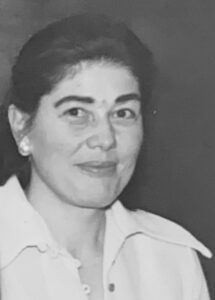 The morning of March 30, 2024, Fern Mahala Willey Kruse passed away at age 90. Her husband, Merrill Kruse, was by her side in their Woodstock, VT home. Fern was the proud and loving mother of Carolyn Colonero-Brown and Melanie Fraser. Her grandchildren, Aryn Colonero, Zachary Fraser, and Nathan Fraser were her joy. She was delighted to be present when Carolyn married Steven Brown in June 2023. Family was important to Fern, and her husband, daughters, and grandchildren deeply felt that love.
The morning of March 30, 2024, Fern Mahala Willey Kruse passed away at age 90. Her husband, Merrill Kruse, was by her side in their Woodstock, VT home. Fern was the proud and loving mother of Carolyn Colonero-Brown and Melanie Fraser. Her grandchildren, Aryn Colonero, Zachary Fraser, and Nathan Fraser were her joy. She was delighted to be present when Carolyn married Steven Brown in June 2023. Family was important to Fern, and her husband, daughters, and grandchildren deeply felt that love.
Fern was born on July 22, 1933, into a large family in North Conway, NH. She was predeceased by all her siblings. Family gatherings with her siblings and their families were cherished times for Fern. She honored those connections by remaining in touch with her nieces and nephews on both sides of her family.
Fern’s early school years were spent at Kurn Hattin with most of her siblings. She attended Springfield High School as a senior and graduated with the class of 1951. While there she played girls basketball, sparking a lifelong love of the game. Many of her friendships from Springfield High lasted late into her life.
Fern moved to Woodstock in her twenties and worked at both the White Cupboard and the Old Woodstock Inn. While working at the Woodstock Inn she met her future husband, Merrill, and they married in May 1960.
After marriage Fern embraced being a homemaker and volunteer. Fern was an enthusiastic vegetable and flower gardener. She was happiest with her hands in the dirt, tending her plants. She loved picking fruit and berries at local farms. Fern was a wonderful home cook, famous for her lasagna and pies. Fern was also known for her baking, making cakes for gymnastic events, cupcakes for school parties, and many, many batches of cookies for the Bloodmobile.
Fern was a dedicated Red Cross blood donor, earning multiple gallons-donated pins. In honor of her grandchildren, she donated pedi-packs for babies. As a volunteer, she posted Bloodmobile notifications in storefronts and businesses across the area. Fern was a voracious reader and shared this love as a volunteer reading tutor at the Woodstock Elementary School Library. Fern sold Red Poppies to honor the military service of her loved ones and raised money to support the American Cancer Society. Fern became a Girl Scout leader when her daughters joined. Recognizing the need for Girl Scouting in Woodstock, she continued her involvement as both a troop leader and with the Swift Water Girl Scout Council. In 1990 the council honored Fern’s 22 years of service with an appreciation award.
Fern worked as a housekeeper for a few special households. In each case, she became friends with, and remained close to, her employers and their families for many years.
Fern was a devoted sports fan, she enjoyed watching almost any sport. However, her real love was “her” Boston Red Sox, a team she passionately and loyally supported from the age of 16. The games Fern attended at Fenway Park with friends and family were cherished memories. She also loved the Boston Celtics, a team she followed for decades with only slightly less devotion than “her” Red Sox.
Some of Fern’s most precious times were spent at a table with her entire family. She loved celebrating a special day with a special meal. Family vacations were cherished, and Fern particularly enjoyed time spent by the ocean. She loved sharing time away with her grandchildren.
Fern deeply valued her family and friends. She enjoyed a conversation on the phone, at the dining table over a cup of coffee, or in a chance encounter with a friend in town. Throughout her life, she made connections and lasting friendships wherever she went. She sought to make a difference in people’s lives. Her family looks forward to hearing your memories. A memorial visitation will be held at Cabot Funeral Home on Saturday, April 20, 2024, from 2 p.m. to 4 p.m. Private graveside services will be held at a future date.
The Cabot Funeral Home is assisting the family. An online guestbook can be found at cabotfh.com
April 11
6:50 am
Fred Merrill
 Fred Merrill, 84, passed away peacefully Saturday evening March 30, 2024, at Woodstock Terrace.
Fred Merrill, 84, passed away peacefully Saturday evening March 30, 2024, at Woodstock Terrace.
Fred was born on Dec. 9, 1939, in New York, N.Y., son of Dr. Frederick Hamilton, M.D. Merrill and Joan Williams Merrill. He was married to Margaret Williamson in 1964.
Fred taught many Woodstock youth their soccer skills. He coached and loved the game. He was very dedicated to the Mid Vermont racing program and its many ski racers. He skied well into his seventies, a fixture on the Woodstock ski hill.
He enjoyed bird-watching on Christmas day with his peers. He also worked as park ranger for the local national park. He loved to teach everyone about the beauty found in the outdoors. He taught at a local college, environmental sciences after obtaining a graduate degree in conservation biology.
Survivors include his wife, Peggy, and two sons, Killy, and Gabe, and his numerous friends in the Woodstock community.
The Cabot Funeral Home is assisting the family. An online guestbook can be found at cabotfh.com.
April 11
6:50 am
Robert McElwain
 Robert McElwain died on April 3, 2024 at his home in Woodstock, following a period of declining health.
Robert McElwain died on April 3, 2024 at his home in Woodstock, following a period of declining health.
Bob was born in Kalamazoo, Mich. on Sept. 17, 1937. He grew up in Cincinnati and then attended the University of Michigan where he received a BA (1960) and an MBA (1963).
Michigan and its sports would remain an abiding love for Bob throughout his life (Go Blue!).
He worked in the world of finance in New York and Chicago until a classic mid-life crisis led him and his family to Grafton, Vt. in 1974. After a few years, his wife and children returned to Chicago but Bob remained in Vermont — a state he loved and where he felt at home. Although they did not live in the same place, Bob continued to have a loving and strong relationship with his children and later his grandchildren who all helped to make his life so special.
In 1977 Bob founded Bike Vermont an inn-to-inn bicycle touring company. The best possible fringe benefit he always said was that Fiona MacDonald came down from Toronto to join a tour and impetuously asked him to marry her. They have been happy ever since.
After fifteen years, the business was sold and Bob and Fiona spent the next thirty years traveling the world, walking on beaches, and working in their ever-expanding gardens in Woodstock. Bob was a voracious reader, a fan of many sports, particularly baseball, a lover of country music, and a keen player of cribbage.
He derived much pleasure from the many hours he spent volunteering at Dartmouth Hitchcock Medical Center, the Woodstock Community Food Shelf, and the Naples Botanical Garden. He was an active friend of Bill W. for the past thirty-two years.
He is survived by his wife Fiona and his three children: Beth McKenna (Dave), Amy Strickland (Dave), and Robert McElwain (Secil), and his six grandchildren.
At his request, there will be no service, but at a later date, there will be gatherings of friends and family to remember Bob.
Donations in Bob’s name may be made to the Woodstock Community Food Shelf or the Norman Williams Public Library.
Bob’s family would like to thank Bayada Hospice for their compassionate help and support over the last four months.
The Cabot Funeral Home is assisting the family (cabotfh.com).
April 11
6:45 am
Judy Colby
Judy Colby, 83 of Sarasota, FL, formerly of Woodstock VT, passed away on March 25, 2024.
Judy was predeceased by her husband of 56 years, Charlie Colby. Judy is survived by 3 children, 9 grandchildren and many friends. A memorial service will be held on April 13, 2024, at 11 a.m. at Friendship Baptist Church located at 5700 Palmer Blvd in Sarasota.
Funeral arrangements by the National Cremation Society & Burial Service, Sarasota.
April 11
6:45 am
Wilmer Baker
 Wilmer Baker of Brownsville, VT died on March 20, 2024, at the age of 88. Bill graduated from New England College in 1956 as a civil engineer. He worked for the Lane Construction Corporation for 30 years, starting on the survey party and ending as Vice President of Purchasing. He was an accomplished musician, playing piano, trumpet, and french horn.
Wilmer Baker of Brownsville, VT died on March 20, 2024, at the age of 88. Bill graduated from New England College in 1956 as a civil engineer. He worked for the Lane Construction Corporation for 30 years, starting on the survey party and ending as Vice President of Purchasing. He was an accomplished musician, playing piano, trumpet, and french horn.
He married Marcia when they both graduated from college, and they were together for 72 years. He was a hard worker and could build or fix anything at their home in Connecticut which included a clay tennis court and an inground pool. Bill developed many properties in Connecticut and Vermont, including Killington, Winooski, and Ferrisburgh. Bill and Marica moved to Brownsville in 2002 where he continued to upgrade the 1820 Best House.
He leaves his wife, daughter Debra Taylor (Jim) of MA, Michael Baker (Annette) of CA, and David Baker, also of CA, as well as five grandchildren, Christina Franzblau (Erik), Sean Baker and Jason Baker of CA, and Caitlin Ramsdell (Kris) and Rebecca Morrill (Brendan) of MA. He is survived by four great-grandchildren, Josie and Conner Franzblau of CA and Rowan Morrill and Quinn Ramsdell in MA, as well as his brother Ken Baker (Amy) of Webster, NY, and their children and grandchildren.
The family is grateful for the outstanding care Bill received at Cedar Hill in Windsor, VT for the past two years, where he is remembered for his great smile and energetic singing.
Donations may be made to Lucy MacKenzie Humane Society or the Alzheimer’s Association.
Rest in peace dear Bill/Dad/Papa!
Knight Funeral Home of Windsor, VT is honored to be entrusted with arrangements and online condolences may be made at www.knightfuneralhomes.com.
April 11
6:45 am
Paul Milza
 Paul Milza of Cornwall, NY, and formerly of Staten Island, NY, and Plymouth, VT passed away at the age of 98 on March 28, 2024, surrounded by his loving family.
Paul Milza of Cornwall, NY, and formerly of Staten Island, NY, and Plymouth, VT passed away at the age of 98 on March 28, 2024, surrounded by his loving family.
Paul is survived by his beloved wife JoAnn Milza (née Bradley) of 63 years, whom he met while they were both teaching History at New Dorp High School. Paul and JoAnn raised a large and loving family; Paul and Judy Milza (née Osifchin), Kathleen Furman (née Milza) and Michael Furman; Michael and Tania Milza (née Ratner) and Peter and Francesca Panfilo-Milza (née Panfilo) as well as eight grandchildren; Alex Milza, Danielle Aristizabal (née Milza); Matthew, David, and Andrew Furman; Amelia and Sophie Milza; and Zoe Milza as well as one great-grandchild, Luciana Aristizabal. He is survived by his loving siblings, Catherine Seggio (née Milza), Edward Milza, and Ernie and Gloria Milza (née Roselle), as well as many nephews and nieces who loved him so much.
Paul was born in Staten Island, NY, on March 16, 1926, to Paul and Louise Milza (née Molinelli). He graduated from New Dorp High School in 1945 and then served his country in the army from 1945 to 1946. After his service ended, he attended St. Vincent College in Latrobe, PA, graduating in 1951 under the GI Bill. Following graduation, he returned to New Dorp High School in 1952 and began a lengthy career as a history teacher and football coach. He served as assistant coach to Sal Somma until 1976 and head coach through the 1979 season. During this time, New Dorp football enjoyed enormous success, winning 5 New York City titles. He retired from New Dorp in 1985 and became the Athletic Director at Moore Catholic High School where he remained until 1994.
After retiring from Moore he pursued, with vigor, his other passions; traveling with his beloved wife JoAnn, gardening, skiing, exercising, and spending time with his four children and eight grandchildren. He also was an avid fan of Notre Dame football and could be found standing, arms crossed, in front of his TV for the entire game on any given Saturday. His faith was always an integral part of his life and Paul enjoyed participating in the life of his parishes as a lector and a member of the Knights of Columbus. During their long retirement, Paul and JoAnn traveled extensively- going to Europe several times. They also crisscrossed the country on more than one mission occasion in their RV, visiting Alaska, the Canadian Rockies, and many other states before settling in Plymouth, Vermont, a place they loved to spend time in the summers camping and skiing in the winter. They thrived in Plymouth for more than 20 years before moving to Cornwall, NY in 2017 to be closer to their family.
On March 16, 2024, Paul celebrated his 98th birthday with his children and grandchildren and had the joy of meeting his first great-grandchild, Luciana. Paul was beloved by all who met him; from his children and grandchildren to the students and faculty he came in touch with during 40 years of teaching and coaching, and the friends and neighbors from the communities which he lived during his long and beautiful life. He will be missed terribly by all.
Visitation was held on Monday, April 1 at Quigley-Sullivan Funeral Home, Inc., 337 Hudson St. Cornwall-On-Hudson, NY. A Mass of Christian Burial was held at 10 a.m. on Tuesday, April 2 at St. Thomas of Canterbury Church, 340 Hudson Street, Cornwall, NY followed by internment at St. Thomas Cemetery, Cornwall, NY.
Arrangements are entrusted to Quigley-Sullivan Funeral Home, Inc.; to send condolences or to get directions to the funeral home, please go to www.Quigleybros.com.
April 11
6:40 am
Leona "Lee" G. Stetson LaFountain
 Leona “Lee” G. Stetson LaFountain passed away peacefully in her daughter’s home in Hyde Park, MA on February 18, 2024. She was surrounded by lots of love
Leona “Lee” G. Stetson LaFountain passed away peacefully in her daughter’s home in Hyde Park, MA on February 18, 2024. She was surrounded by lots of love
from family and friends.
Leona was born at home in Pomfret, VT on November 15, 1934, to Wayne Wilson Sr., and Marion (Roberts) Wilson. At the age of ten after the sudden loss of her mother, Leona went to live with her “Grammy and Grampy” Roberts whom she adored.
After attending school in Woodstock, VT Leona met her first love, Harvey J. Stetson. They married and together raised five beautiful children. Spending time with family was very important to them, whether it was a weekend barbecue, meeting other families for picnics, or taking long drives in the country. They also shared their small family farm and each child enjoyed raising their own pets. Leona and Harvey created their own special memories. They loved to go out dancing on Monday and Saturday evenings at the local Grange Hall and jitterbugged, waltzed, and danced the polka until the wee hours of the morning.
After Harveys’ passing in May 1993, Leona eventually remarried Earl “Lefty” O. LaFountain, Jr., and gained 13 children, 21 grandchildren, 10 great-grandchildren, and many nieces and nephews. They shared the love of the outdoors-canoeing, hiking, and camping throughout New England. They also enjoyed spending time on Campobello Island in New Brunswick, Canada, and on Martha’s Vineyard. Their true passion always led them back to the ocean waters of Maine where they walked the shorelines collecting sea glass, sea shells, and driftwood.
When Leona wasn’t busy traveling she was heavily involved in serving her community. She volunteered at The Brookside Nursing Home, The Historic Homes of Runnemede Senior Center, The White River Senior Center, and she was the activities coordinator for Merten’s House. She also earned the top Avon representative outstanding achievement award for the state of Vermont. She held this position for several years, while at the same time cared for Woodstock families over the span of several generations. Caring for these multi-generational families became one of her life long passions during the day, and she was also a self-taught baker during the evening. She perfected a homemade biscuit recipe, which her children praised her for and pleaded her to make for all family gatherings. Her biscuits and other sweet treats were also delivered and sold to the Co-op at the Bridgewater Mill Mall.
Leona was a devoted mother, grandmother, friend and confidante to those she loved. She expressed her love with intense passion, whether it was towards a person, animal, or place, and with unconditional regard. She lived laughed and loved with her entire soul. She will be missed deeply by all.
Leona was preceded in death by her husbands, Harvey J. Stetson, and Earl O. LaFountain, Jr.; her mother Marion (Roberts) Wilson and father Wayne W. Wilson, Sr.; sisters Mary (Wilson) Chamberlin of Windsor, VT, and Marge (Wilson) Thibodeau of Hartland, VT; and brother Wayne W. Wilson, Jr. of Woodstock, VT.
She is survived by her five children; Barbara (Stetson) Chamberlin and husband Wallace Chamberlin of Woodstock, VT; William (Bill) Stetson of Woodstock, VT; Roland (Ron) Stetson of Fair Haven, VT; Donna (Stetson) Arnold and husband Raymond Arnold of Northfield, VT; Lynn Stetson of Hyde Park, MA and grandchildren; Steven Chamberlin and wife Terri (Lamson) Chamberlin of Pomfret, VT; Wendy Chamberlin of Woodstock, VT; Jeffrey Chamberlin and wife Christina (Henderson) Chamberlin of Killington, VT; Christina Chamberlin (companion Jim Morgan) of Pomfret, VT; Aimee (Stetson) Pollard of Monroe, North Carolina; Andrew (A.W.) Stetson of North Carolina; Roland (Ronnie) Stetson, Jr. (companion Elesha Larrow) of Middlebury, VT; Amanda Runnells of Fair Haven, VT; great grand children: Justin Chamberlin, Rylie Pollard, Lukas Pollard, Morgan Stetson, Avery Stetson; and a great great grand child: Bria (Chamberlin) White.
A private memorial will be held in the summer at the Hewittville Cemetery in Pomfret, VT.
In honor of Leona, please consider a memorial gift to her favorite charity, St. Jude Children’s Research Hospital at stjude.org
April 11
6:40 am
Norman Henry Boynton
Building contractor, and restorator of early architecture
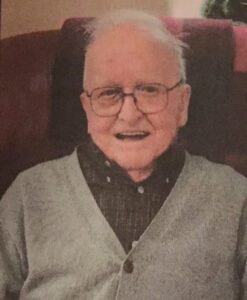 Norman Henry Boynton, 99, of Quechee, Vt. passed away peacefully in his sleep on March 26, 2024 in Claremont, N.H. He was born on Nov. 1, 1924 in Hartford, son of Max Mark Boynton and Birdie Frances Jenne.
Norman Henry Boynton, 99, of Quechee, Vt. passed away peacefully in his sleep on March 26, 2024 in Claremont, N.H. He was born on Nov. 1, 1924 in Hartford, son of Max Mark Boynton and Birdie Frances Jenne.
His boyhood home was Turkey Hollow on the Barnard-Pomfret line. He graduated from Woodstock High School in 1942. He later married Priscilla Jean Kelly of Woodstock. They had one son, Philip Norman Boynton, who resides in Phoenix, Ariz.
Norman’s passion was to build and restore homes, and that he accomplished from the 1940s to 1998. His first challenge was to develop Barberry Hill in West Woodstock, living in one of the colonial-style homes with his family. Purchasing more land, old cabins alongside Rt. 4, on the Ottauquechee riverside, he engineered and built the “Pond Ridge Motel” with a cottage on the property that he restored. It later was sold several times and became the perfect location for a Vermont designed elegant hotel, “On the River Inn.”
Norman was always fascinated with historical homes with fancy trim. It became a reality with the restoration of the 1815 house Dr. Denison home in Royalton owned by John Duville, the State of Vermont preserver of Historical homes. This led to numerous restorations, one in Strafford “The Justin Morrill Homestead.”
During a six year period, Norm was employed as an instructor at Oxbow High School in Bradford, Vt., Vocational Division, where his students built six homes. It was one of the most rewarding experiences!
Next another project was with Ed Kellog of Pomfret, who also loved very early homes. They sought everything extremely old, and were delighted to restore together. After the tragic death of his wife Priscilla in 1981, he decided to move. He purchased the lovely Owen Taft Federal brick home, known as “The Four Pillars.” It was built by Owen Taft in 1836. Owen was a cousin to U.S. President Taft. Norman resided there and bought a house and barn along Rt. 4. He had a fantastic shop of early American furniture, varied merchandise, with sleighs and horse carriages outside the barn. The house was used for rental apartments. He continued building on a smaller scale.
In 1991, he met Bertha Hazen Gendron from Quechee, whose husband passed in 1981. They were married in Woodstock in 1992. Bertha taught her treasured students at the Ottauquechee School retiring in 1995. Both sold their homes and Norm’s Antiques in 1998, buying a retirement home in Quechee.
During retirement, they traveled extensively, enjoying the winter vacation in a resort in Florida, and summer vacations on their favorite “Martha’s Vineyard.”
Norm loved his flower gardens, and liked the quote, “You don’t have a garden just for yourself, you have it to share.” He was also an avid horseshoe pitcher, participating annually at the senior games competition in Middlebury, Vt. He tried to convince family, neighbors and friends that it was the best sport!
The Thompson Senior Center in West Woodstock offered activities, programs and events that he couldn’t resist, not to mention the delicious and nutritious lunches by Chef Andrew.
In memory of his childhood, he authored a book “Where Did All the Turkeys Go?” about rural life in Vermont with folksy illustrations.
He was a kind, thoughtful, generous man, with many stories to tell, always with a smile, that brought joy to others.
He was predeceased by his parents; first wife Priscilla; brother Max Mark Boynton, Jr.; sisters Glendine Boynton Welch, Madeline Boynton Clarke, Marjorie Boynton Spencer and Charlotte Boynton Ingram.
He is survived by his wife Bertha, son Philip and wife Pamela, granddaughter Jaime West and spouse Cory, great granddaughter Alyssa Boynton, Bertha’s children, Jeffrey Gendron and spouse Kathleen, Melissa Gendron Michaels and spouse Eric, grandson Ethan Michaels, also many beloved nieces and nephews.
A family service will be held in the Riverside Cemetery in Woodstock in June.
In lieu of flowers please remember The Thompson Senior Center.
An online guestbook can be found at cabotfh.com.
April 11
6:15 am
Allen Dougherty
After a long and graceful struggle with Alzheimer’s, our loving husband, father, grandfather, and friend Allen Dougherty passed away peacefully in the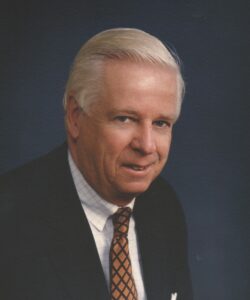 arms of his family on March 4th, 2024. Born in 1934 in Pearl River, New York, he was the son of Harold and Margaret (Hattick)Dougherty and had three older sisters.
arms of his family on March 4th, 2024. Born in 1934 in Pearl River, New York, he was the son of Harold and Margaret (Hattick)Dougherty and had three older sisters.
He graduated from Pearl River High School with honors and entered Antioch College in Ohio, the first member of his family to attend college. Having worked his way through the four years, he went on to SMU law school, graduating with high honors. He then served in the U.S. Army Reserves and was honorably discharged in 1962.
He went on to join the law firm of Covington & Burling in Washington, D.C. After ten years there, he moved to Philadelphia to join the law firm of Schnader Harrison Segal & Lewis as a partner. For this firm, Allen represented UPS, among other clients and corporations in the field of corporate tax law. When the UPS headquarters relocated to Atlanta, Georgia, he opened an office for his law firm there and moved to Atlanta with his family in 1992, where they lived until his retirement in 2000. He then retired to Woodstock, Vermont where he had often brought his family on ski trips and holidays. There, Allen, with his wife Gail, enjoyed being able to ski, sail, fly, and hike. He also enjoyed entertaining his family and friends in the new town he loved.
Allen enjoyed serving this community. He gave his time and talents to Pentangle, where he was a board member and president for six years. He also chaired the board at HCRS of Southern Vermont for ten years. He was a faithful member of Our Lady of the Snows Catholic Church and a leader of the Vermont Liturgical and Classical Music Society. He loved Woodstock and always had a wide smile for everyone. Allen leaves behind his wife Gail and his five children, natural and adopted, Tim, Crysta, Robbins, Sean, and Anton, as well as 11 grandchildren. He is predeceased by his parents and three older sisters.
In lieu of flowers, his family hopes you will consider making a donation to the Thompson Senior Center (https://www.
A memorial Mass to celebrate Allen’s life was held on Saturday March 9, 2024 at Our Lady of the Snows Catholic Church in Woodstock followed by a reception at the Woodstock Inn.
The Cabot Funeral Home in Woodstock is assisting the family.
Annual Appeal
April 11
12:59 pm
Now it’s official -- IRS approves Journalism Foundation as public charity, donations are tax deductible
By Dan Cotter, publisher
A huge sigh of relief and a fist pump were my first reactions, as well as a gaze skyward as I mouthed the words “thank you!” The tears welling up in my older friend’s eyes were his response when I told him.
Then we shared a long, hard hug.
After lots of research and preparation, and then six months of waiting for the application to be processed, Phil Camp and I recently learned that the IRS has approved the Woodstock Region Journalism Foundation’s application for tax-exempt status under section 501(c)(3) and deemed the Foundation to be a public charity.
The approval wasn’t in much doubt, really. But now it’s official.
The Foundation was established last August and it is primarily dedicated to preserving the Vermont Standard and its role in informing citizens and supporting democracy in our area well into the future. The Foundation has a board made up of local residents who care deeply about our community and the value local journalism provides. Phil and I are on the board too. Together, we’re working to keep the 171-year-old Vermont Standard going while taking steps to position the paper’s print and digital journalism for long-term sustainability.
Recognizing the critical role the Standard plays in informing and connecting our community, this Foundation wants to avoid letting our area become a “news desert,” as has happened in hundreds of other places throughout the US in recent years. Newspapers like the Standard are currently dying off at a pace of 2.5 per week. Nor do we want to end up like the hundreds of cities and towns where profit-seeking corporations that have no devotion to the public welfare have acquired their local paper and stripped it of its resources, to the point that it is only a pathetic shadow of its former self and incapable of doing its job.
Providing accurate, credible, reliable news and information to its audience is a local news organization’s primary role. A functioning democracy requires an informed, engaged public. The Woodstock Region Journalism Foundation’s board members, advisors and friends will help Phil and I in our mission to raise enough money to keep quality journalism flowing here.
So, I’m glad to report that any donation you’ve made to the Woodstock Region Journalism Foundation to support the Standard’s mission to inform, connect, and educate our community on issues of public importance is indeed tax-deductible dating back to the inception of the Foundation in late August 2023, as all donations will be going forward.
At 88 years old, Phil feels a real sense of urgency about making sure that our community will always have local journalism – especially given the 40+ years he’s dedicated to leading the paper and his unrivaled love for Woodstock and its surrounding towns. We know we’re in a race against the clock. But now, with the Foundation’s charity status and your tax deduction confirmed, we hope there will be even more support from donors and family foundations that will help us accomplish this very important mission.
Thank you from the bottom of our hearts for your encouragement and generosity. If you would like to contribute to our Annual Appeal, please send us a check at PO Box 88, Woodstock, VT 05091, or go to our Vermont Standard THIS WEEK website at https://thevermontstandard.com/annual-appeal/ to make a contribution with your credit card. Please be sure to make your check out to the “Woodstock Region Journalism Foundation.”
April 11
5:31 am
Since no news would be bad news, here’s some good news

By Dan Cotter, publisher
Anyone keeping track has probably noticed that the Vermont Standard’s annual appeal is starting late this year. In the past, I’ve written a series of four columns in August-September to let you know how we’re doing in Phil Camp’s and my quest to keep our local journalism viable for Woodstock and its neighboring towns. Here we are now at the end of September and I’m finally getting back to you!
Still, I think the message I have to share today is one worth waiting for.
Everybody knows by now that newspapers all throughout the country have been hanging by a thread. The Standard is no different. In the past, I’ve described our financial challenge to you here in the pages of the paper and Phil and I have met with a number of you personally to discuss the mission we’re on to try to ensure that the Standard continues to keep citizens here informed and connected well into the future, despite the loss of much of the traditional newspaper advertising revenue that supported local journalism in communities like ours for the past hundred years. We think that the public service newspapers like ours perform is critical to the health of our American democracy, and we believe that our community would be greatly diminished if we’re not successful in our quest to rescue the Standard.
Just ask the more than 20 percent of Americans who now live in communities that have no trustworthy, in-depth, or independent news source reporting on their local issues.
About 2,500 newspapers around the country have gone out of business in the past 20 years, and many, many of those that still exist are now just a shadow of their former selves, as corporate scavengers have acquired them and stripped them of their resources, leaving them alive but emaciated and wholly incapable of performing their duty to their community.
We’re not trying to merely keep some semblance of a paper alive here. We’re trying to preserve a good, independent, 170-year-old purveyor of local journalism (both in print or digital formats) that our community can continue to trust, rely upon, and be proud of.
And we are clearly not alone on this journey. For the past few years, increasing numbers of those who read and care for the Vermont Standard have pitched in to offer assistance. We’ve received donations and significant financial support from people who believe that having fair-minded, professionally produced, independent local journalism is extremely important to the quality of life here, and it’s a safeguard against sources that may otherwise spread misinformation and even disinformation in the community.
All of these angels who helped us did so with no expectations other than that we’d continue to do our best to inform, entertain, and connect the community we exist to serve. They did it out of their love for Woodstock and the neighboring towns that make up our community. Without even the benefit of a tax deduction.
Five years ago, wise friends of the Standard advised Phil and me to explore whether the paper could be operated by a nonprofit entity – which would enable it to receive tax-deductible contributions from donors and apply for grant funding. At the time, prospects for that route didn’t look promising. But with the ongoing counsel of those friends and others who have assisted us along the way, we have now identified and set out on a path forward that we hope will lead to the approval of a new 501(c)(3) organization to operate the newspaper.
This month, the Woodstock Region Journalism Foundation was created. The Foundation, which is dedicated primarily to preserving the Standard and its role in informing citizens and supporting democracy in our area well into the future, has formally filed an application for recognition of tax-exempt status with the Internal Revenue Service. The Foundation has a board made up of local residents who care deeply about our community and the value the Standard provides. Phil and I are on the board too. Together, we’ll work to continuously improve the paper’s print and digital journalism, and position it for long-term sustainability.
Now you can make a donation to the Woodstock Region Journalism Foundation and your contribution will be utilized in the form of project grants to support the Vermont Standard’s mission to inform, connect, and educate our community on issues of public importance. Contributions will be tax-deductible dating back to the inception of the Foundation. Of course, we recommend potential donors discuss with their own advisors any specific questions about their particular contributions.
We are very excited about this development, and we hope that more people will now be willing to support the Standard with a donation, and perhaps past donors will even consider increasing their contribution. For those who have family foundations, we hope that you’ll consider adding the Woodstock Region Journalism Foundation to the causes you regularly support.
Our need is quite urgent, to say the least. After many months of preparation, we are certainly pleased to now be in this position, but we’re late getting started with our annual appeal and we’ve incurred additional expenses to set this up, so that thread we’re clinging to is awfully frayed right now. We are profoundly grateful for anything you can do right away to help us get on firmer financial footing.
If you’re willing to make a donation to our 2023 Annual Appeal, please send us a check at PO Box 88, Woodstock, VT 05091, or go to our Vermont Standard THIS WEEK website to make a contribution with your credit card. Be sure to make your check out to the “Woodstock Region Journalism Foundation.”
UPDATE: The IRS has approved the Foundation’s application for nonprofit status, so your gift will be tax-deductible.
April 11
5:30 am
Making friends while trying to make ends meet
By Dan Cotter, publisher
Friendship. That’s what I’m thinking about as I publish this year’s fourth and final annual appeal article.
Of course, that makes perfect sense given our heritage.
If you’ve ever seen longtime Vermont Standard icon Phil Camp in action as he walks down Central or Elm Street, or when he’s seated near the fireplace at the Woodstock Inn, you know what I’m talking about. I nicknamed him the “Unofficial Mayor of Woodstock” because, like a campaigner, he seems to want to talk to everyone he encounters, whether it’s an old friend (he’s got quite a few, as he’s lived here almost 88 years) or a visitor from wherever. His opening line with those visitors — after complimenting them on their cute child or puppy — is “where are you from?” After giving them a warm welcome and trying to get to know them better, he typically tells them a little more about our area and then a lot about the Vermont Standard. He always closes these brief exchanges by encouraging them to check out our Vermont Standard THIS Week website or buy an eEdition subscription so that they can keep up with our beautiful Woodstock area after they return home.
It’s as though he was commissioned by the Chamber of Commerce, but really, he just likes to make friends.
And he does. On occasion he even hears back from folks he’s greeted, thanking him for being one of the highlights of their recent visit.
Likewise, if not for the friends we’ve made, the Standard, like so many other newspapers around the country, would have closed up shop at some point in the past few years after losing access to such a large portion of the advertising dollars that traditionally supported community journalism. Thankfully our readers stepped up to fill the gap with their donations. Thanks to them — our friends — we’re still alive and striving to do our best, and I am still able to write this to you today.
We may have struggled to make ends meet, but we have been able to make some good friends. And that’s a blessing.
I’m reminded of Carole King’s song, “You’ve Got a Friend”
If the sky above you
Grows dark and full of clouds
And that old north wind begins to blow
Keep your head together
And call my name out loud
Soon you’ll hear me knockin’ at your door
Some of our friends seemingly came knockin’ out of nowhere to support us, to support our community by preserving its journalism and to support its democracy. They asked for nothing in return, not even for recognition. We are eternally grateful to them. We hope to make them proud, and we hope they’ll continue to have our back. And we hope we’ll continue to meet new friends along the way.
Four special friends have now come together to serve on the board of the new Woodstock Region Journalism Foundation: Charlie Shackleton, Darlyne Franzen, Rob Wallace, and Bill Emmons. As I announced a few weeks ago, the Woodstock Region Journalism Foundation, which is dedicated primarily to preserving the Standard and its role in informing citizens and supporting democracy in our area well into the future, has formally filed an application for recognition of tax-exempt status with the Internal Revenue Service. These Foundation board members believe in us and they care deeply about our community and the value the Standard provides. Right now, they are encouraging their own friends to support this important cause at this critical juncture.
If you’re willing to make a donation to the Woodstock Region Journalism Foundation, your contribution will be utilized in the form of project grants to support our mission to inform, connect, and educate our community on issues of public importance. Contributions will be tax-deductible dating back to the inception of the Foundation.
Winter, spring, summer or fall
All you have to do is call
And I’ll be there, yes, I will
You’ve got a friend
You’ve got a friend
Ain’t it good to know you’ve got a friend
Indeed, it is good to know that you’re all our friends. So many community newspapers throughout the U.S. are braving their final hour. But, especially with the establishment of the Woodstock Region Journalism Foundation, we’re hoping that the Vermont Standard is now embarking on its finest hour, hand in hand with you, our friends.
To make a donation, please send us a check at PO Box 88, Woodstock, VT 05091, or go to our Vermont Standard THIS WEEK website at www.thevermontstandard.com to make a contribution with your credit card. Be sure to make your check out to the “Woodstock Region Journalism Foundation.”
UPDATE: The IRS has approved the Foundation’s application for nonprofit status, so your gift will be tax-deductible.

April 11
5:29 am
Let’s not lose our sense of place
By Dan Cotter, publisher
The main thing I remember is that it was always loud. And a bit chaotic.
With seven children all just a year apart, there tended to be a lot of clamor and teasing as we’d prepare the dinner table in our house where I grew up. Dad was home from work and it was time to eat!
This ritual took place more or less every day. Everyone had scattered to work and school and sports, part-time jobs, and all sorts of other activities throughout the day, but in the evening, we gathered for the one meal we ate together and to talk about what was going on. It was there around that table — where elbow space was at a premium — that we learned of each other’s latest achievements, trials, and disappointments, laughed at each other’s tales from the front, the foibles we had experienced or witnessed that day, found out about what’s coming up for the family, including challenges we faced, and on so many occasions, after expressing our opinions about one thing or another, we engaged in fierce debate.
Sure, we spent moments with a parent or certain siblings during the day and we picked up bits and pieces of information or gossip along the way, but it was at the dinner table that we could count on hearing the straight story from our parents and each other. There, as we kept up with our family’s day-to-day news, we also strengthened our bond.
Of course, the dining experience is probably a little different for families these days. Households tend to be smaller and parents’ work schedules aren’t as predictable. Plus, with all of the activities children participate in that cut into mealtime, it may not be possible for some families to gather together on a daily basis. The catching up and bonding may take place on a more infrequent basis or in a different setting, but it’s just as important nonetheless.
Having a regular, ongoing opportunity to share news and information that we and only we are truly interested in gives everyone the sense that they’re in the know and an important member of the family. It helps us create our shared identity.
I think it’s pretty much the same in a small community like ours.
Technically, just by virtue of living here, everyone is part of the community. However, it’s the access to our own news and information — that regular habit of keeping up with what’s going on among us – that nurtures our sense of belonging, our shared identity, and it helps give our community its sense of place.
When we are able to better know each other, and know more about our local businesses and organizations, our history and traditions, and all the constantly-changing issues and narratives that are playing out in our community, we can truly feel connected and at home in this unique place and we can participate in our community better.
For example, in our community, and only in this particular community, the Wasps are both the king and queen when it comes to sports. Issues such as retiring public servants, accommodations for tourists, proposed new schools, and short-term rental regulations are headline news here. We have our very own natural disasters to contend with, as well as the local controversies and court cases everyone is following. We have a multitude of entertainment offerings to keep abreast of. We have people who are well-known and admired here, and there are always examples cropping up of ordinary people doing extraordinary things here that we like to hear about. Plus, we gather each year to vote on local candidates and topics that affect us personally, financially and emotionally. And people here certainly aren’t afraid to express an opinion and have a debate from time to time.
All of those concerns are an integral part of life here. Our community’s identity then, is more than just a collection of pretty towns surrounded by farms and lush, rolling hills. It’s actually our shared interests and experiences that give this community its true sense of place.
I liken the Vermont Standard to the “dinner table” of my youth, where we gather to keep up on things that are of interest to this community. Our reporters collect that news and information and we package it, deliver it, and make it possible for all of us to digest it each week so that we come away more informed and hopefully knowing and feeling a little closer to each other. In this way, we can more fully embrace our collective experience and be ready to participate, armed with a common, credible set of knowledge. Like with a family at mealtime, our shared identity is strengthened and we’re all better off.
I hope you’ll consider joining our mission as we scramble to keep the Standard going despite the financial pressures that threaten its survival. We’ve got a large — though not insurmountable — operating deficit to overcome, and we just can’t keep this up without significant help. Our hope is that you agree with us that our local journalism is nourishment for our community and worthy of your investment. We hope you’ll make a donation to our 2023 Annual Appeal, and even better, consider adding us to the organizations that you make donations to each year so that we can achieve some staying power. If you own a business, we hope you’ll consider advertising with us as well.
Some good news is that last month, the Woodstock Region Journalism Foundation was created. The Foundation, which is dedicated primarily to preserving the Standard and its role in informing citizens and supporting democracy in our area well into the future, has formally filed an application for recognition of tax-exempt status with the Internal Revenue Service. The Foundation has a board made up of local residents who care deeply about our community and the value the Standard provides. Phil Camp and I are on the board too. Together, we’ll work to continuously improve the paper’s print and digital journalism, and position it for long-term sustainability.
If you’re willing to make a donation to the Woodstock Region Journalism Foundation, your contribution will be utilized in the form of project grants to support our mission to inform, connect, and educate our community on issues of public importance. Contributions will be tax-deductible dating back to the inception of the Foundation.
To make a donation, please send us a check at PO Box 88, Woodstock, VT 05091, or go to our Vermont Standard THIS WEEK website at www.thevermontstandard.com to make a contribution with your credit card. Be sure to make your check out to the “Woodstock Region Journalism Foundation.”
UPDATE: The IRS has approved the Foundation’s application for nonprofit status, so your gift will be tax-deductible.

April 11
5:28 am
We’re betting on this community, at this time, for this mission
By Dan Cotter, publisher
If not us, who? If not now, when?
These soul-searching questions have been pondered by leaders throughout history when faced with situations that required great courage and determination. In fact, longtime Vermont Standard publisher Phil Camp and I asked ourselves those same questions several years ago as we embarked on our mission to preserve quality local journalism for Woodstock and its neighboring towns, including Hartland Pomfret, Barnard, Quechee, Bridgewater, Reading, West Windsor, Plymouth and Killington. We were inspired by those questions as we set out to save the Standard’s print and digital journalism that informs and connects our community even though the advertising revenue that has supported the paper through the years has diminished.
Just like other newspapers in large and small towns throughout the country, the Standard has been fighting for its life. Similar to everywhere else, advertising revenue is evaporating as smaller, independent retailers and service providers that traditionally supported local news organizations with their ads have been replaced by chains, big box stores and online sellers that typically do not support community journalism. And many classified advertisers now use dedicated help wanted, auto, and real estate websites instead of a newspaper. Plus, the residual effects of the COVID-19 economic shutdown have further eroded many businesses’ advertising budgets.
Without sufficient advertising support, the Standard, like all newspapers, relies heavily on the public to help fund its local journalism. And that journalism is needed now more than ever in a society dominated by social media echo chambers, political and social division, and the proliferation of misinformation. Still, the Standard’s situation is dire. If not for contributions from philanthropic citizens who fully recognize the value of having local journalism in our community, the paper would lose several thousand dollars each week, and sadly — after a 170-year run — there would be no Vermont Standard.
Saving this one small newspaper in Vermont is obviously important to the community here, but it also has national implications. Papers like the Standard are dying off at a pace of two per week. And far too many newspapers that are still alive have been acquired by corporations that have stripped them of their resources, turning them into “ghost papers” that are unable to adequately inform and serve their communities.
Most newspapers are on the brink of insolvency. We must find a way in this country, both collectively and individually, to keep credible local journalism alive, to keep citizens informed and connected. Our democracy depends on it.
The Standard is symbolic of this problem our nation faces. But if there is any place in the country where people truly love their community and treasure their newspaper — which is still produced by a small but devoted staff trying to do the right thing — it’s Woodstock, VT. If this community can’t find a way to sustain its local journalism, there is probably little hope for the rest.
Unlike most other newspapers, the Standard, which already operates on a shoestring, has resisted the strategy of further stripping down its small operation to bare bones. Instead, we are attempting to preserve it as a quality newspaper that can continue serving our community well.
Phil always maintained that the Standard actually belongs to the community. He’s right, and it’s in their hands now. If local journalism can indeed be saved, it will happen here, where citizens are so engaged and appreciation for the Standard is so strong.
If not us, then who? If not now, then when?
We’ve made significant progress. Last month, the Woodstock Region Journalism Foundation was created. The Foundation, which is dedicated primarily to preserving the Standard and its role in informing citizens and supporting democracy in our area well into the future, has formally filed an application for recognition of tax-exempt status with the Internal Revenue Service. The Foundation has a board made up of local residents who care deeply about our community and the value the Standard provides. Phil and I are on the board too. Together, we’ll work to continuously improve the paper’s print and digital journalism, and position it for long-term sustainability.
We hope you’ll take a moment to make a donation to the Woodstock Region Journalism Foundation. Your contribution will be utilized in the form of project grants to support our mission to inform, connect, and educate our community on issues of public importance. Contributions will be tax-deductible dating back to the inception of the Foundation.
Your contribution has the potential to make a real difference – to save our paper and give us a chance to put in place initiatives that ensure our long-term sustainability, to draw attention to the loss of quality local journalism across the country, and to motivate others to advocate for solutions to this crisis before it is too late.
If you’re willing to make a donation to our 2023 Annual Appeal, please send us a check at PO Box 88, Woodstock, VT 05091, or go to our Vermont Standard THIS WEEK website at www.thevermontstandard.com to make a contribution with your credit card. Be sure to make your check out to the “Woodstock Region Journalism Foundation.”
UPDATE: The IRS has approved the Foundation’s application for nonprofit status, so it’s confirmed that your gift will be tax-deductible.
![]()
April 11
5:00 am
Hard to imagine Woodstock without the Standard
“View From Here”
By Sandy Gilmour, Woodstock resident
If you are reading this column right now, that’s good news for the community. It means you probably paid for this paper, hard copy or online, maybe even made a donation to it, and value its contribution to our lives in Woodstock and surrounding areas. We are so fortunate to have the Vermont Standard week in and week out. For years, small-town dailies and weeklies have been closing their doors, leaving communities without a soul. Papers like the Standard are dying off at the rate of two per week across America.
Such towns are called “news deserts.” Imagine weeks, months and years going by with no professional reporting on selectboards, trustees, school boards, taxes and roads. Zero stories about public school events, sports, student accomplishments, obituaries, gardening tips, neighborly cooking advice, local history, and no reports from towns from Brownsville to Pomfret.
We would know next to nothing about the interminable Peace Field Farm restaurant delay, the Ottauquechee Trail head fiasco, the high-stakes Woodstock Foundation controversy and the fatal shooting off Central Street, including the bravery of Woodstock Police Sgt. Joe Swanson. In my view, these stories have been really well reported.
To not get these stories delivered to us every week would be a news desert right in verdant Woodstock, for sure, a gaping hole left to be filled by rumor and mis- and dis-information, the precursors of community dissolution. So we are blessed indeed to have had the Vermont Standard around — nonstop — since 1853, and owned by beloved Woodstocker Phil Camp, now 87, since 1981.
But as Mr. Camp has pointed out many times over the years, the paper’s solvency hangs on a thread and now more than ever. In hundreds of towns across America, owners, beleaguered by losing subscribers and advertising to social media, simply folded or sold out to hedge funds and private equity firms, whose investors are bereft of community values. Not Phil Camp. He has always said, “I never sold out. I’m never giving up.” He made up for past deficits (difference between expenses, like staff, and income from subscriptions and ads) out of company savings from better times, week after week. He stayed with it after being flooded out by Tropical Storm Irene in 2011 and being burned out by the Central Street fire of 2018 (taking out his camera and snapping photos of the flames and rubble).
The paper was in dire straits when COVID hit, saved by the forgiven federal PPP (Paycheck Protection Program) loans through 2021, when the largesse ended. Then beginning in January 2022, the community stepped up, responding to a fundraising appeal. I was rather stunned to learn from the Standard’s publisher, Dan Cotter, that the paper’s annual shortfall of $150,000-$200,000 is being covered by donations from local Woodstock residents. There are many (and appreciated) donations in the $50-$100-$200 range, but really heavy lifting is being done by donors of means who, Mr. Cotter says, highly value the contribution local journalism makes to communities. Several of these more-than-generous and anonymous donors contribute $20-25,000 and more — each — and, Mr. Cotter says, without any hint of trying to influence coverage. Without them, surely there would be no Vermont Standard in the mailbox or online, just the unreliable grapevine. At the same time, the paper is moving to create other revenue streams, including an online advertising app for Woodstock happenings and a magazine, in addition to improving thevermontstandard.com website for go-to news.
Still, the operation is bare bones. It seems to me a miracle the paper “hits the streets” without fail every Thursday with some pretty good and important stories that we need to know about, and many features that are good to know about. And there are just two, count them, two, full-time staffers who report stories: the seasoned and prolific Tom Ayres, and Tess Hunter, who is also the managing editor. Ms. Hunter says reporter staffing is the big issue; she has on hand freelance contract reporters that can be assigned to stories if they are available and if they want to spend the evening at yet another unexciting if important selectboard meeting. “It’s a constant juggling act,” Ms. Hunter told me, “between finding the right person for the story and just getting people to say ‘yes.’” Still, she is committed, saying, “Without us making the attempt, there would be no common base of understanding and little sense of the community spirit of the area or the hard news happening within it.”
Volunteer contributors are crucial; regular community writers like Jennifer Falvey (insightful musings on life) and Kurt Stauder (pointed political observations) are popular. Mary Lee Camp’s business column is relentlessly informative.
Other key staff are listed in the box below — lean and spare!
Publisher and editorial content director Dan Cotter, 64, hired by Mr. Camp in 2018 after years of informal consulting for the Standard, is not a household name in Woodstock, though he is hands-on every issue. He owns a condo in the area and is here about half the month, returning to his home and wife in Chicago for the remainder. He has decades in the industry as an executive and consultant, was head of the New England Newspaper and Press Association, and takes a no-nonsense hard line on newspaper independence and objectivity. It’s an unusual situation but Mr. Camp, still the president of the company, has total confidence in Mr. Cotter and has turned over the Vermont Standard, its operation, assets and its future, to his close friend. Mr. Camp has indeed not “given up,” but hopes to ensure his dear newspaper’s future with this arrangement.
So where does the Standard go now? Around the country, journalists are reinventing newspapers and online reporting. The most promising seems to be the non-profit model, where deductible contributions from community-minded supporters can be made even as the publication accepts subscription fees and what advertising there is left. There are indications that the Standard is moving in this direction, and the sooner the better, in my view. When I pressed Publisher Cotter on the issue, he responded with this very encouraging comment:
“In the past couple of years, members of the community have literally kept the Standard alive with their donations — and a handful of them have given very substantial sums, even without the benefit of a tax break. That’s how much they value the role our local journalism plays in the quality of life in our area. We are working now to put the paper on a path to where donors could indeed have a tax benefit. For it is essential to our democracy and our own survival that we have the financial support we need from the community to maintain a news organization — modest as it is — that’s capable of producing good local journalism that adequately informs our citizens.”
I can’t imagine Woodstock without the Vermont Standard. The new business model provides great hope the paper will not only survive but as a Woodstock-based non-profit, continue to expand coverage to benefit all of us in this great community.
Note: This (unpaid) column originated with me alone!
Sandy Gilmour is a retired NBC News correspondent who lives in Woodstock.
April 11
1:01 am
Newspapers Are In a Race Against the Clock
Woodstock
Business Resources
April 11
3:35 am


